Golden Age of Islam
اسلام کا
سنہری دور
Selected Pages Part 1 of 2
منتخب صفحات
M. Ahmad Zafar | 25 Oct, 2023 | aagahi.com
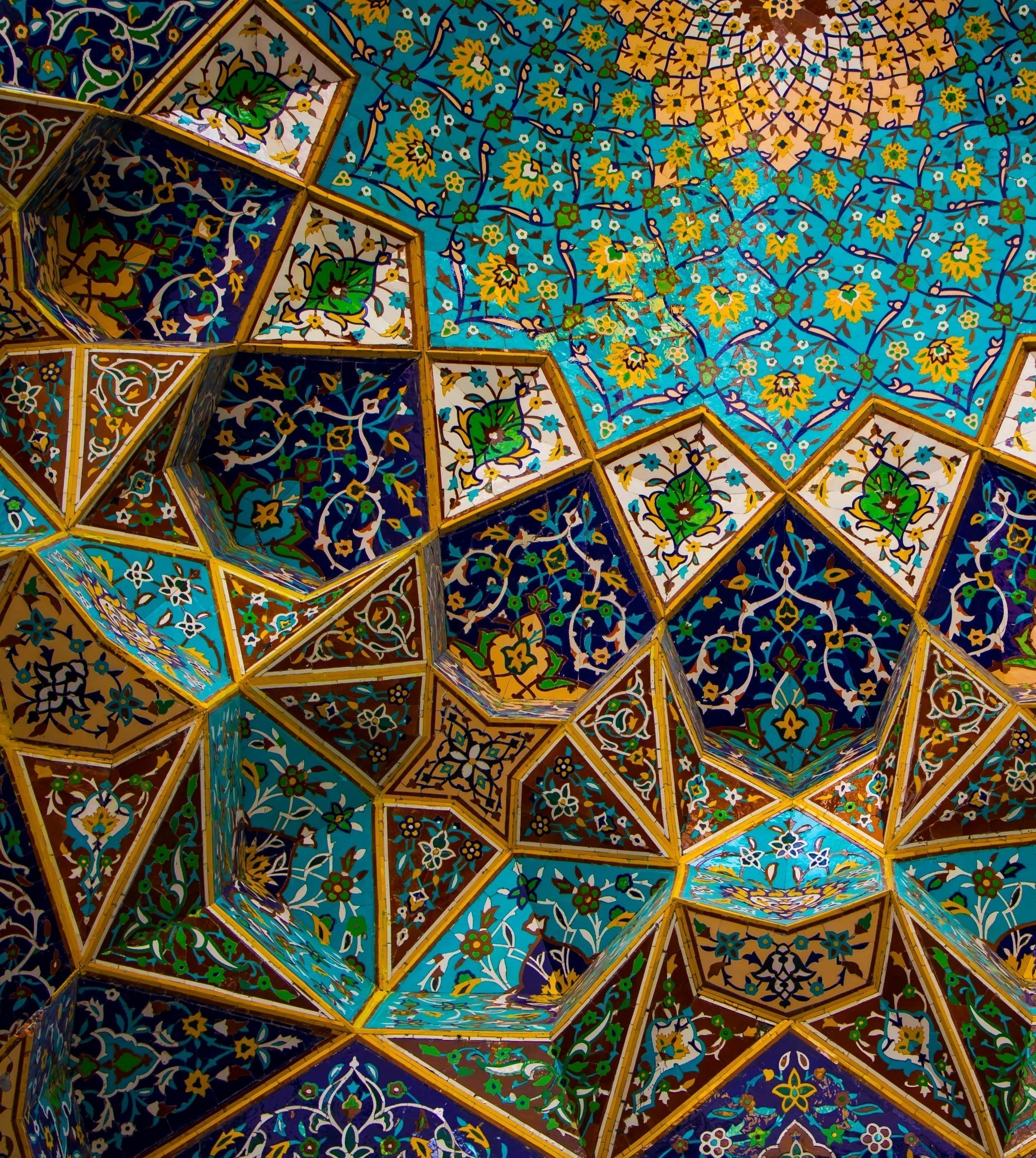
أَبُو الْحَسَنِ، قَالَ قَالَ عَمْرُو بْنُ مُرَّةَ لِمُعَاوِيَةَ إِنِّي سَمِعْتُ رَسُولَ اللَّهِ صلى الله عليه وسلم يَقُولُ « مَا مِنْ إِمَامٍ يُغْلِقُ بَابَهُ دُونَ ذَوِي الْحَاجَةِ وَالْخَلَّةِ وَالْمَسْكَنَةِ إِلاَّ أَغْلَقَ اللَّهُ أَبْوَابَ السَّمَاءِ دُونَ خَلَّتِهِ وَحَاجَتِهِ وَمَسْكَنَتِهِ »
Abul-Hasan narrated that Amr bin Murrah said to Muawiyah (r.a), “I heard the Messenger of Allah (s.a.w) saying, ‘No Imam closes his door on one in need, dire straits and poverty, except that Allah closes the gates of the Heavens from his dire straits, his needs, and his poverty.’ So Muawiyah (r.a) appointed a man to look after the needs of the people.”
[Tirmidi, Kitab Al-Ahkam (13), 1332] (Sahih)
The Salary of the Caliph was Decided
“... the stipend they agreed to give him consisted of 250 Deenaars a year and certain parts of a sheep. That amount was to be taken from the Muslim Treasury. It was, however, a paltry sum, which was not enough to provide for his and his family’s needs. Because of his dire circumstances, Abu Bakr (r.a) went out one day ...
Umar (r.a) said, ‘Then we will give you more.’ ... Abu Bakr (r.a) then went to the Masjid ... said, ‘O people, my salary was 250 Deenaars in addition to parts of a sheep ... increased my salary to 300 Deenaars in addition to a sheep in its entirety. Does this arrangements satisfy you?’ ...”
[Abu Bakr As-Siddeeq by Ali Muhammad As-Sallabi, Page 270]
Abu Bakr ؓ on the Death of his Son (1)
“The Muslim army made many attempts to penetrate the gates of At-Taaif’s fortresses, but to no avail; the fortresses were impenetrable. In fact, more than a few Muslim soldiers were injured as they tried to gain entry into the fortresses; and at least some Companions were killed. One of the martyrs of that day was Abu Bakr’s son, Abdullah ibn Abu Bakr. Hit by an arrow, Abdullah (r.a) survived for a while and even managed to make is way back to Al-Madeenah. But the wound he was inflicted worsened rather than healed, and he died in Al-Madeenah shortly after the death of the Prophet (s.a.w).”
[Abu Bakr As-Siddeeq by Ali Muhammad As-Sallabi, Page 144]
Abu Bakr ؓ on the Death of his Son (2)
“After Abdullah died, a delegation of the Thaqeef tribe visited Abu Bakr in Al-Madeenah. Abu Bakr still had with him the arrow that had killed his son, and he took it out in the presence of the delegates and said to them, ‘Does anyone among you recognize this arrow?’ Saaed ibn Ubaid, the brother of Banu Ijlaan, said, ‘Yes, I sharpened this arrow, fixed its feathers onto it ... and fired it.’ Abu Bakr said, ‘Verily, this is the arrow that killed Abdullah ibn Abu Bakr. And all praise is for Allah, Who has honored him to your hand, and Who has not humiliated you by his hand. Indeed, He has made matters spacious and easy for the both of you.’”
[Abu Bakr As-Siddeeq by Ali Muhammad As-Sallabi, Page 146]
Appointment of Umar ibn Khattab ؓ as the Second Caliph
“Uthman said, ‘By Allah, what I know is that what he conceals is better that what he shows outwardly ...’ ... He (Abu Bakr) explained to them the reason why Umar was so harsh and strict and said, ‘That is because he thinks I am too soft and gentle. When he is in charge he will change a great deal.’”
[Umar ibn Al-Khattab by Dr Ali Muhammad As-Sallabi, Volume 1, 154-155]
Advice of Abu Bakr ؓ to the New Caliph
« اتَّقِ اللهَ يَا عُمَرُ ، وَاعْلَمْ أَنَّ لِلَّهِ عَزَّ وَجَلَّ عَمَلًا بِالنَّهَارِ لَا يَقْبَلُهُ بِاللَّيْلِ ، وَعَمَلًا بِاللَّيْلِ لَا يَقْبَلُهُ بِالنَّهَارِ ، وَأَنَّهُ لَا يَقْبَلُ نَافِلَةً حَتَّى تُؤَدَّى الْفَرِيضَ ... »
“Fear Allah, O Umar, and know that there are some deeds to be done for Allah during the day, which He will not accept at night, and some deeds for the night which He will not accept during the day. He does not accept any voluntary deeds until the obligatory duties have been done ...”
[Umar ibn Al-Khattab by Dr Ali Muhammad As-Sallabi, Volume 1, 158]
Guidelines for Muslim Army laid down by Caliph Abu Bakr ؓ
Yahya ibn Saeed narrated that Abu Bakr (r.a) was sending armies to ash-Sham. He went for a walk with Yazid ibn Abi Sufyan (r.a) who was the commander of one of the battalions ... Abu Bakr (r.a) advised Yazid ... “I advise you ten things! Do not kill women or children or an aged, infirm person. Do not cut down fruit-bearing trees. Do not destroy an inhabited place. Do not slaughter sheep or camels except for food. Do not burn bees and do not scatter them. Do not steal from the booty, and do not be cowardly.”
[Muwatta Malik, Book on Jihad, 881]
When the Caliph Umar ibn Al-Khattab ؓ Dismissed Khalid bin Waleed ؓ
“Khalid came to know of the order to dismiss him from command. He went to Abu Ubaydah and said, ‘May Allah forgive you. The letter came from the caliph appointing you in command and you did not tell me; you prayed behind me when you are the one who is in charge.’ Abu Ubaydah said, ‘May Allah forgive you too ... I did not want to interrupt your plan until you had completed it ...’ Then Abu Ubaydah gave Umar’s letter to Khalid.”
[Umar ibn Al-Khattab by Ali Muhammad As-Sallabi, Vol 2, Page 271]
The Siege of Jerusalem & the Prophesy
“The Byzantines assumed the Prince of the Faithful himself leading the conquest. They then informed the patriarch about it.
The patriarch appeared personally before the Muslims to meet the Prince of Faithful, thinking it was Umar. When he realized it was not, he went back to his people ...
The siege ... lasted four months ... The patriarch ... laid down a condition, which was that nobody was to enter Jerusalem before the Prince of the Faithful, Umar Ibn al-Khattab.”
[Palestine - Yesterday, Today and Tomorrow, Page 83]
The Conquest of Jerusalem & the Treaty
“Muslims and Christians signed a treaty called ‘The Omariya Treaty’, which is still housed in the Church of the Holy Sepulchre in Jerusalem.
Jews were forbidden to enter Jerusalem. Actually, they were not there before the conquest. The Christians requested that prohibition and Umar accepted it. After signing the treaty, the gates of Jerusalem were opened to Umar ...”
[Palestine - Yesterday, Today and Tomorrow, Page 85]
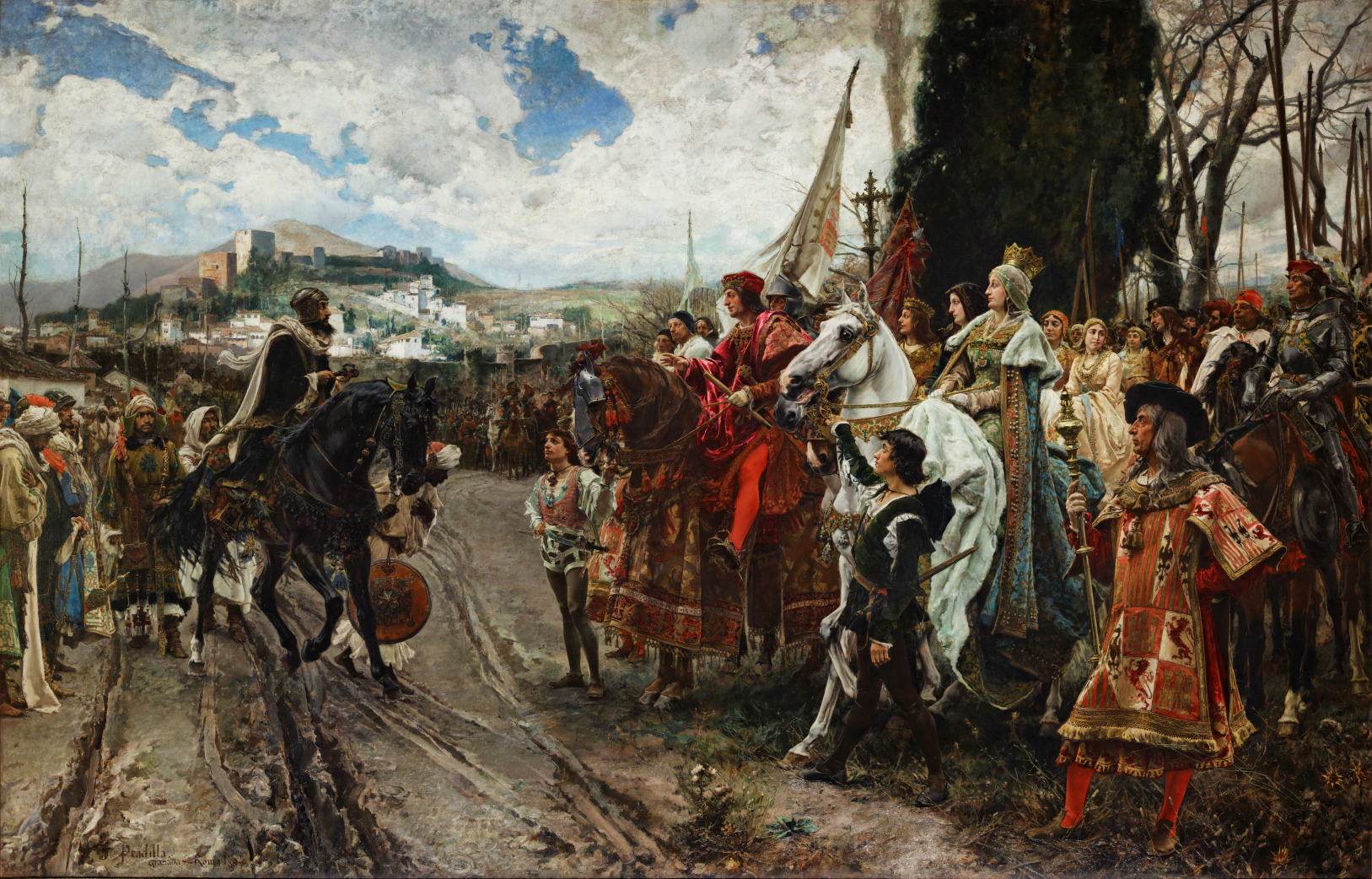
From the start of 16th century, Islam was outlawed from Spain. Many had already fled to North Africa.
Those who could not were forced to become Christians.
“... the peace treaty provided that the Moslems living in Spain were to be permitted to continue practicing their religion ... Spanish government soon violated this agreement.”
[The 100, Queen Isabella I (68), Page 357-358]
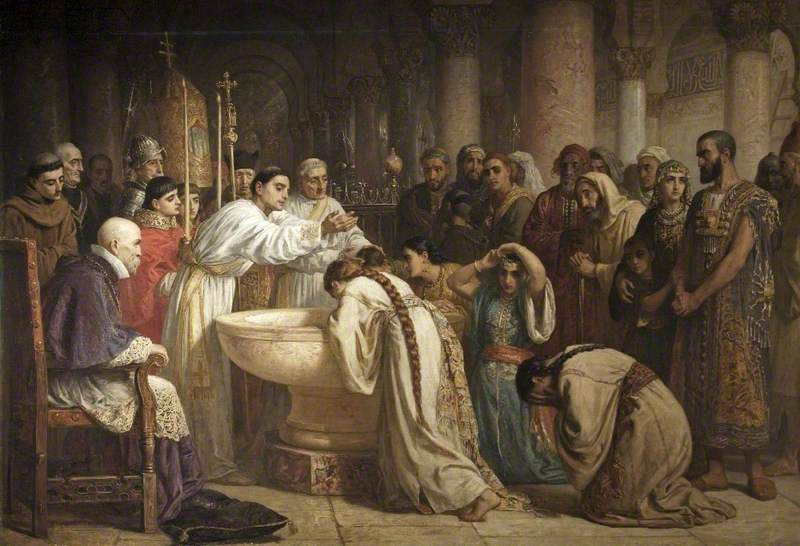
Christian Slave of Umar ibn Al-Khattab ؓ
“Umar had a Christian slave whose name was Ashaqq. He said, ‘I was a Christian slave belonging to Umar.’ He (Umar) said, ‘Become Muslim so that we may benefit from your help with regard to some of the Muslims’ affairs, because we should not seek help in dealing with their affairs from someone who is not one of them.’ But I refused, and he said, ‘There is no compulsion in religion [2:256]’ When Umar was dying, he set me free and said, ‘Go wherever you want.’”
[Umar ibn Al-Khattab by Ali Muhammad As-Sallabi, Vol 1, Page 203]
Balancing Between the Family of the Prophet ﷺ and Umar’s Own
“He (r.a) would not eat any fine food or fruit without sending some of it to the wives of the Prophet (s.a.w). The last one to whom he would send anything was Hafsah, and if there was any shortfall, she would be the one whose share would be affected.”
[Umar ibn Al-Khattab by Ali Muhammad As-Sallabi, Vol 1, Page 255]
Controlling the Spread of Plague
إِبْرَاهِيمَ بْنَ سَعْدٍ، قَالَ سَمِعْتُ أُسَامَةَ بْنَ زَيْدٍ، يُحَدِّثُ سَعْدًا عَنِ النَّبِيِّ صلى الله عليه وسلم قَالَ « إِذَا سَمِعْتُمْ بِالطَّاعُونِ بِأَرْضٍ فَلاَ تَدْخُلُوهَا، وَإِذَا وَقَعَ بِأَرْضٍ وَأَنْتُمْ بِهَا فَلاَ تَخْرُجُوا مِنْهَا »
Narrated by Ibrahim bin Saad that Usama bin Zayd (r.a) used to tell his father Saad bin Abi Waqqas (r.a) that he heard the Prophet (s.a.w) say, “If you hear of an outbreak of plague in a land, do not enter it; but if the plague breaks out in a place while you are in it, do not leave that place.”
[Sahih Al-Bukhari, Book on Medicine (76), 5728]
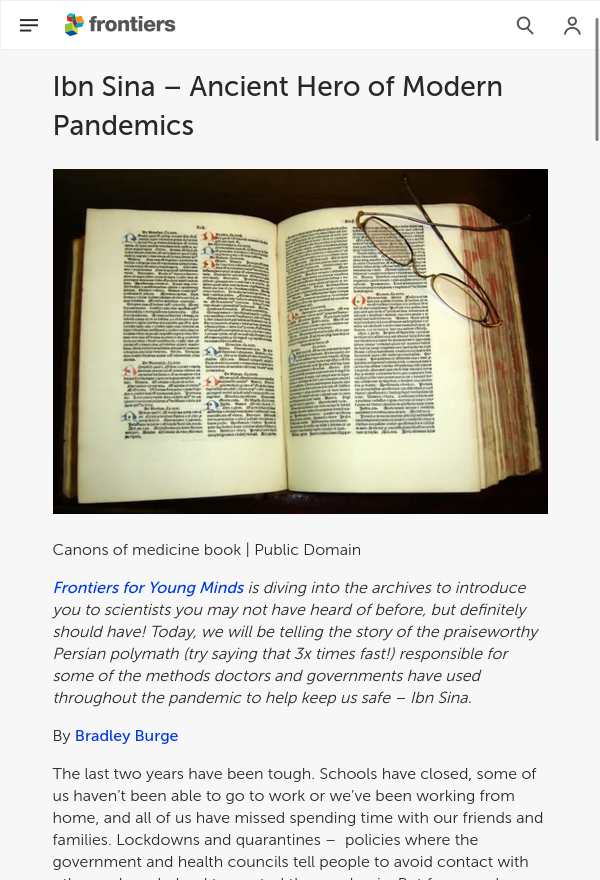
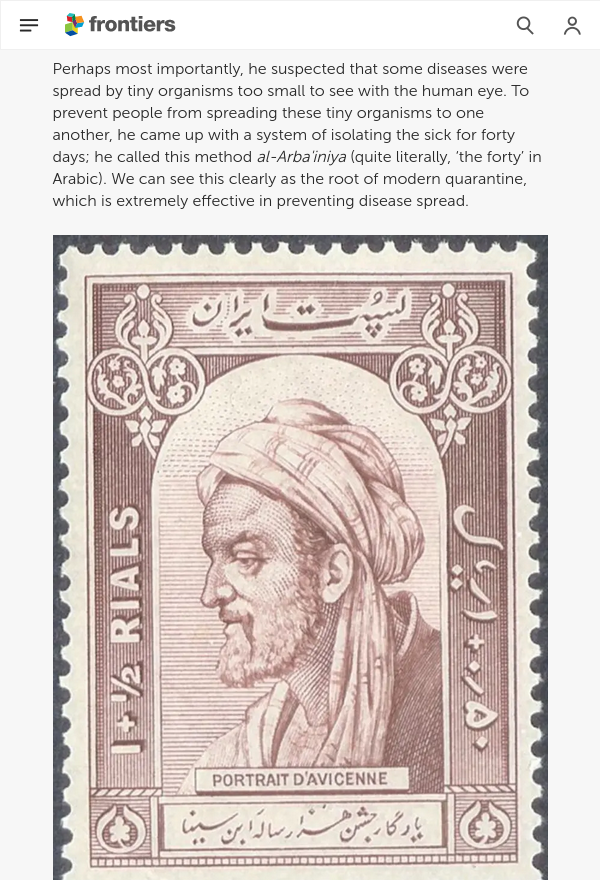
Companions Risked their Lives But Were Steadfast to follow the Hadith
“After Umar left, the land was struck by the widespread plague which was known as the plague of Amwas, which was at its worst in Syria, where many people died, including Abu Ubaydah ibn al-Jarrah, who was the governor, and Muadh ibn Jabal, Yazeed ibn Abi Sufiyan, al-Harith ibn Hisham (or ot was said that he was martyred at al-Yarmook), Suhayl ibn Amr, Utbah ibn Suhayl and the leaders of the people.”
[Umar ibn Al-Khattab by Ali Muhammad As-Sallabi, Vol 1, Page 424]
Mention of Righly Guided Caliphs in Hadith
... فَقَالَ « عَلَيْكُمْ بِتَقْوَى اللَّهِ وَالسَّمْعِ وَالطَّاعَةِ وَإِنْ عَبْدًا حَبَشِيًّا وَسَتَرَوْنَ مِنْ بَعْدِي اخْتِلاَفًا شَدِيدًا فَعَلَيْكُمْ بِسُنَّتِي وَسُنَّةِ الْخُلَفَاءِ الرَّاشِدِينَ الْمَهْدِيِّينَ عَضُّوا عَلَيْهَا بِالنَّوَاجِذِ وَإِيَّاكُمْ وَالأُمُورَ الْمُحْدَثَاتِ فَإِنَّ كُلَّ بِدْعَةٍ ضَلاَلَةٌ »
... He (s.a.w) said, ‘I urge you to fear Allah, and to listen and obey (your leader), even if he is an Abyssinian slave. After I am gone, you will see great conflict. I urge you to adhere to my Sunnah and the path of the Rightly-Guided Caliphs, and cling stubbornly to it. And beware of newly-invented matters, for every innovation is a going astray.’”
[Ibn Majah, Kitab As-Sunnah, 42] (Hasan)
Why Didn’t Uthman ؓ Resign as Caliph
عَنْ عَائِشَةَ، قَالَتْ قَالَ رَسُولُ اللَّهِ ـ صلى الله عليه وسلم ـ « يَا عُثْمَانُ إِنْ وَلاَّكَ اللَّهُ هَذَا الأَمْرَ يَوْمًا فَأَرَادَكَ الْمُنَافِقُونَ أَنْ تَخْلَعَ قَمِيصَكَ الَّذِي قَمَّصَكَ اللَّهُ فَلاَ تَخْلَعْهُ » يَقُولُ ذَلِكَ ثَلاَثَ مَرَّاتٍ .
Narrated by Aisha (r.a), ‘Messenger of Allah (s.a.w) said, “O Uthman, if Allah places you in authority over this matter some day and the hypocrites want to remove the garment with which Allah has clothed you, do not take it off.” He (s.a.w) said that three times.’
[Ibn Majah, Kitab As-Sunnah, 112] (Sahih)
An Weak Narration on Role of a Leader
سَیِّدُ الْقَوْمِ خَادِمُهُمْ
“Leader of a Nation (People) is
their Servant.”
[Forty Ahadith of Shah Waliullah, 34] (Daif)
[Forty Ahadith of Imam Suyuti, 34] (Daif)
Superior Reward of a Servant of People
وعَنْ سهل بن سعد رَضِيَ اللَّهُ عَنْهُ قَالَ قَالَ رَسُولُ اللَّهِ صلى الله عليه وسلم « سَيِّدُ الْقَوْمِ فِي السَّفَرِ خَادِمُهُمْ فَمَنْ سَبَقَهُمْ بِخِدْمَةٍ لَمْ يَسْبِقُوهُ بِعَمَلٍ إِلَّا الشَّهَادَةَ »
سہل بن سعد رضی اللہ عنہ بیان کرتے ہیں، رسول اللہ صلی اللہ علیہ وآلہ وسلم نے فرمایا ”قوم کا سردار سفر میں اُن کا خادم ہوتا ہے، جس نے کسی خدمت کے ذریعے ان پر سبقت حاصل کر لی تو وہ لوگ ماسوائے شہادت کے کسی اور عمل کے ذریعے اس شخص سے آگے نہیں بڑھ سکتے۔“
[Al-Bayhaqi, Shuab-ul-Iman, 8407] (Daif)
“Through Viceroy Linlithgow, Gandhi offered to the British government and the British people his assistance through non-violence. He suggested that they (the British) lay down their arms and pratice ‘ahimsa’. This was not anything other than a very seriously meant proposal. Towards the beginning of July 1940, Gandhi addressed an open letter to the British.”
[Jinnah by Jaswant Singh, Page 265]
Gandhi’s Advice to the British during World War II
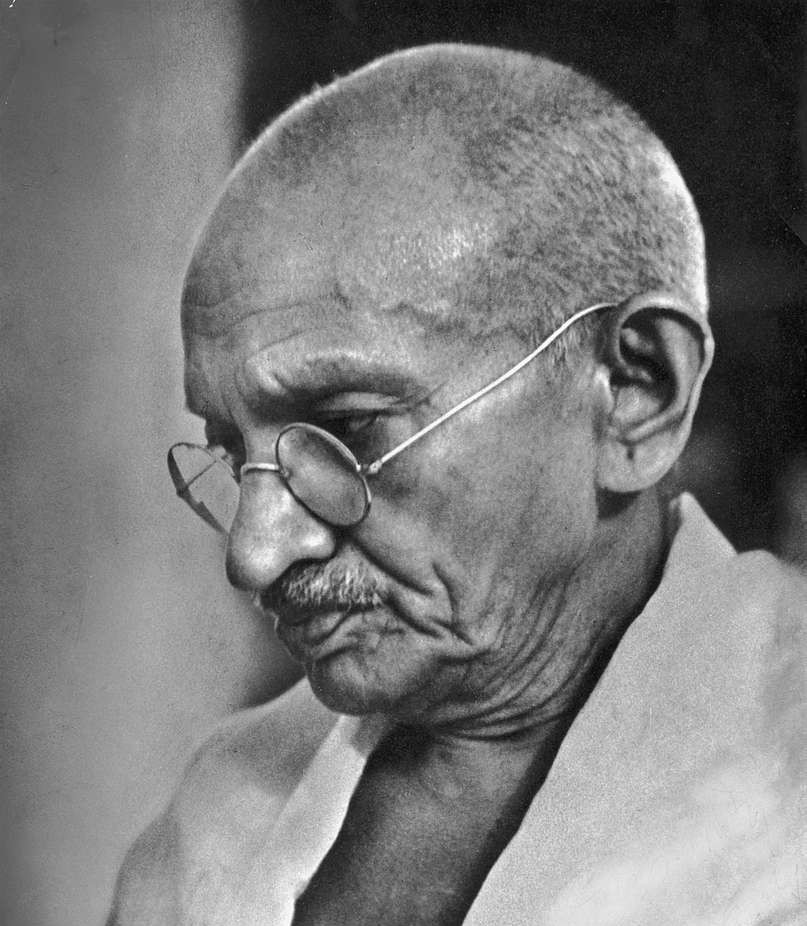
Muslim Armies reached France in 732
“After crossing the Straits of Gibraltar, the armies flooded through Spain and into France, where they met resistance in 732 somewhere between Poitiers and Tours, barely 200 miles from Paris. In a battle ... Charles Martel led a force that inflicted a crucial defeat.”
“... later historians argued, and had it it not been for the heroism and skill of the defenders, the continent would surely have become Muslim.”
[The Silk Roads by Peter Frankopan, Page 87]
Islamic Expansionwithin 200 Years
Shape of the Dome of Rock from Above
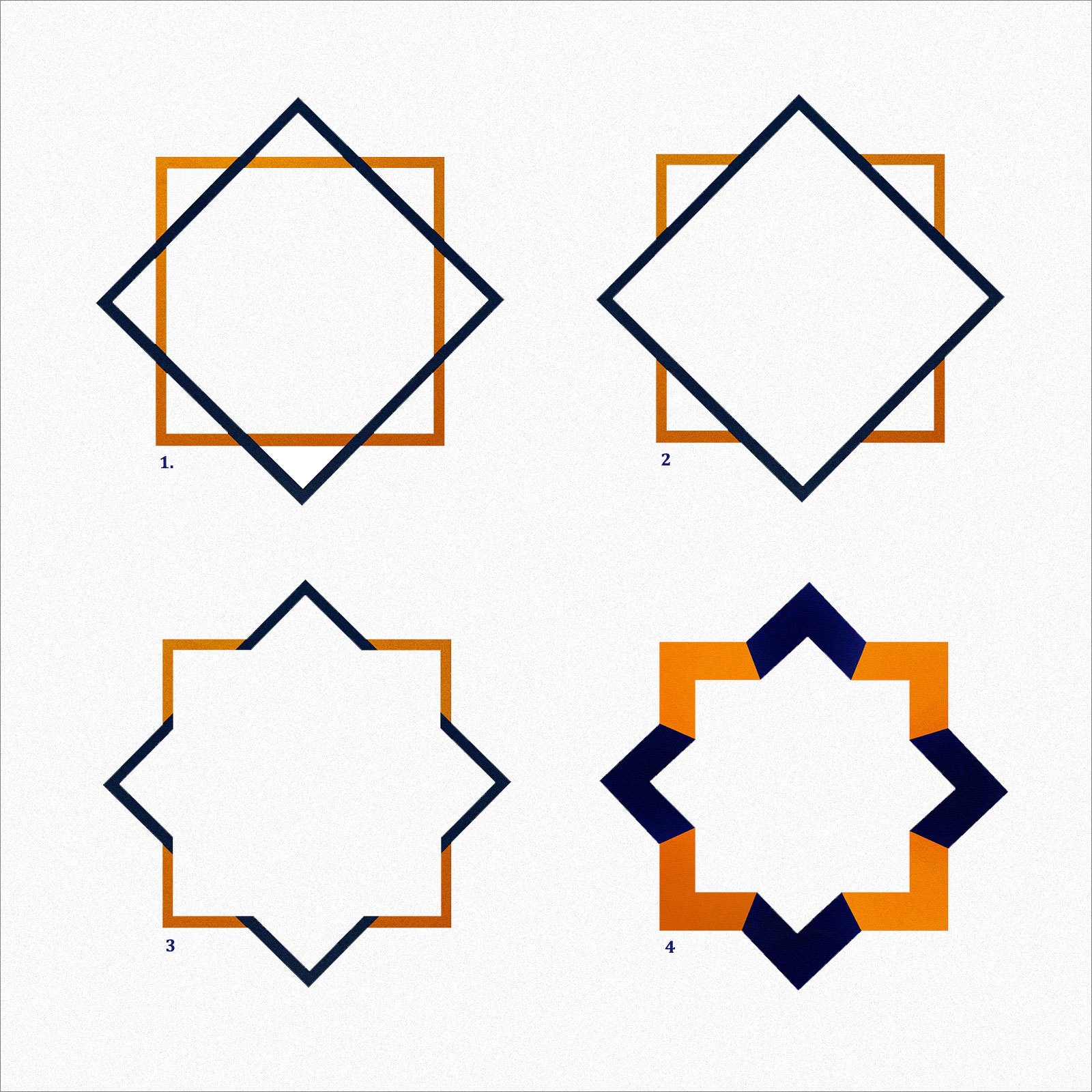
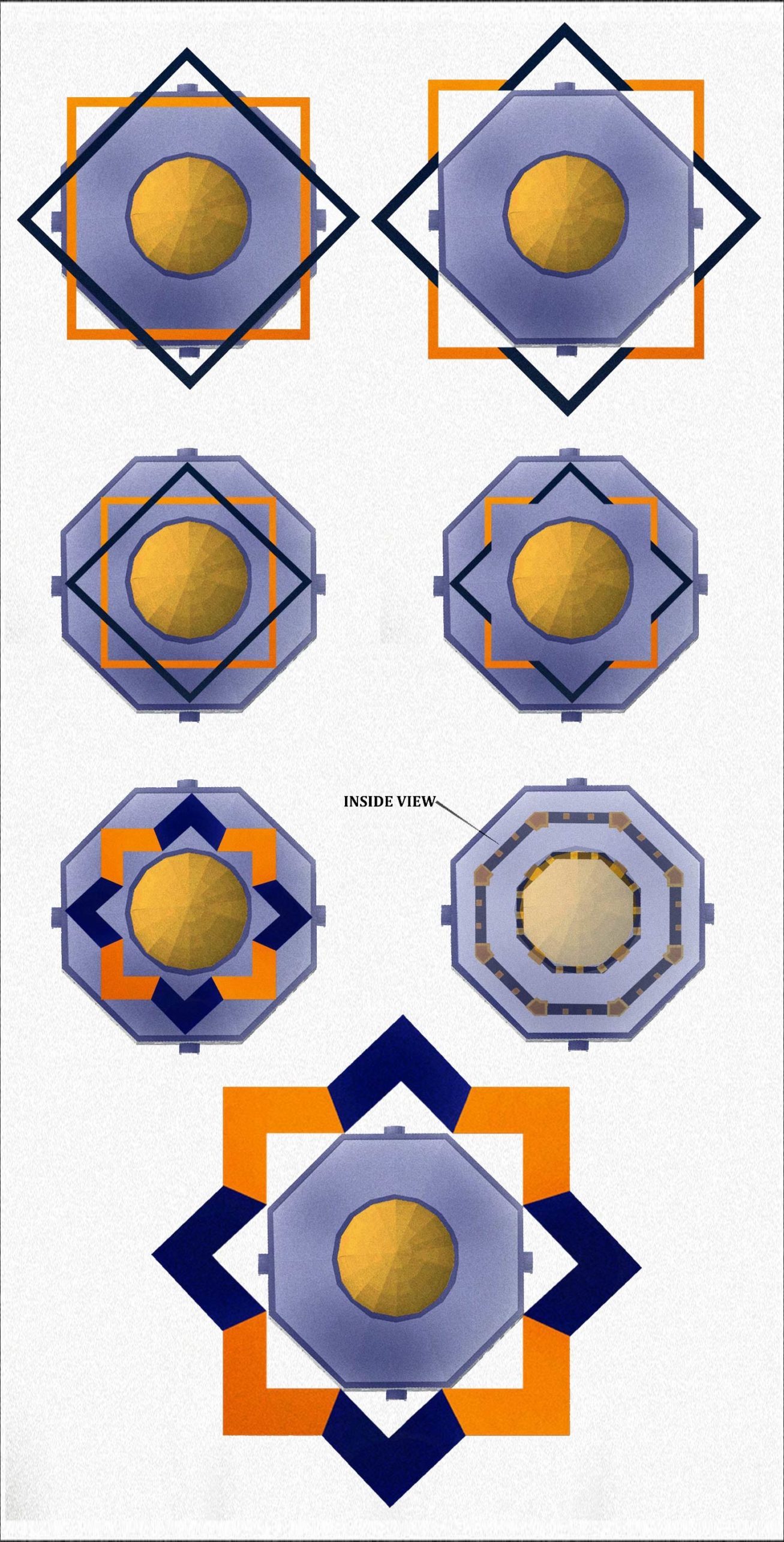
Banu Umayyad Masjid in DamascusCompleted in 715 CE by the Umayyad Ruler Walid
Delaying Prayer on a Very Hot Day
عَنْ أَبِى هُرَيْرَةَ أَنَّهُ قَالَ إِنَّ رَسُولَ اللَّهِ -صلى الله عليه وسلم- قَالَ « إِذَا اشْتَدَّ الْحَرُّ فَأَبْرِدُوا بِالصَّلاَةِ فَإِنَّ شِدَّةَ الْحَرِّ مِنْ فَيْحِ جَهَنَّمَ »
Narrated by Abu Hurairah (r.a) that the Messenger of Allah (s.a.w) said, “When it is very hot, wait until it cools down somewhat before praying, for intense heat is an exhalation from Hell.”
[Sahih Muslim, Book on Masajid and Place of Prayer (5), 1395]
۔۔۔ جب خلافت عمر بن عبدالعزیز کو ملی تو اُس نے مسجد اموی سے تمام سونے چاندی کی زنجیریں اکھاڑ کو واپس بیت المال میں جمع کرنے کا ارادہ کر لیا ۔۔۔
خالد نے (بن عبداللہ القسری) جواب دیا، "اے امیر المومنین اس مسجد کی تعمیر میں جو سنگ روحام استعمال ہوا ہے زیادہ تر مختلف علاقوں کے مسلمانوں کا عطیہ کردو ہے، اس میں بیت المام سے کچھ بھی نہیں لیا گیا۔"
جب اس واقعہ کا عمر بن عبدالعزیز کو ہوا تو اس نے کہا، "اگر یہ مسجد کفار کے دلوں میں کھٹکتی ہے تو اسے رہنے دو۔"
[ابن کثیر کی کتاب البدايۃ والنهايۃ، جلد 9، 74 تا 125ھ کے واقعات]
Baghdad - Symbol of the Golden Age
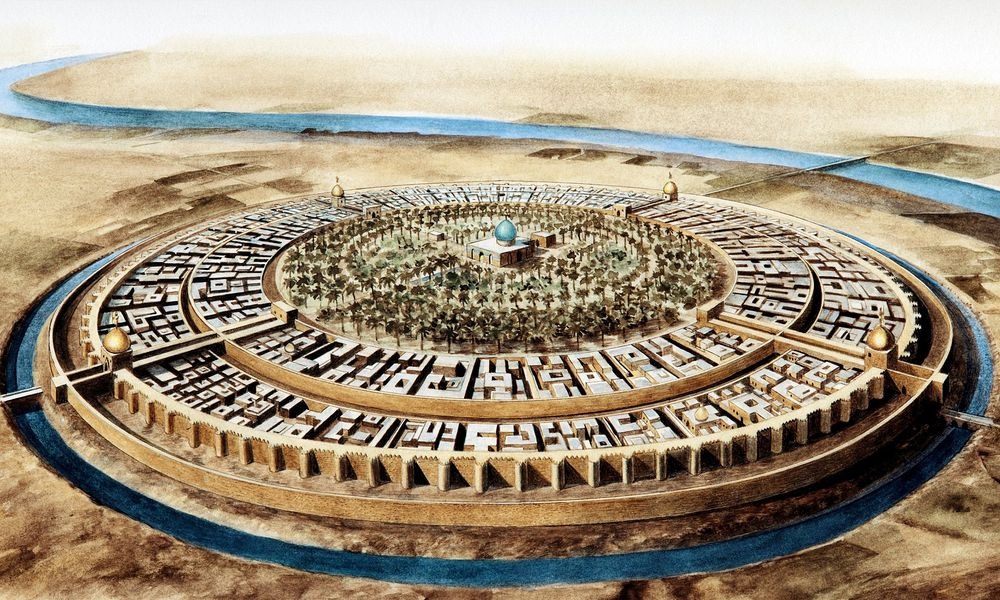
A Very Special Gift
“The best-known exotic animal at Charlemagne’s court was the elephant he received from Harun al-Rashid. This Indian elephant, named Abul Abbas, arrived in Francia in 801, and it was one of the great wonders of Charlemagne’s court until it died on campaign with the emperor in Saxony in 810.”
[In the Manner of the Franks, Page 99]
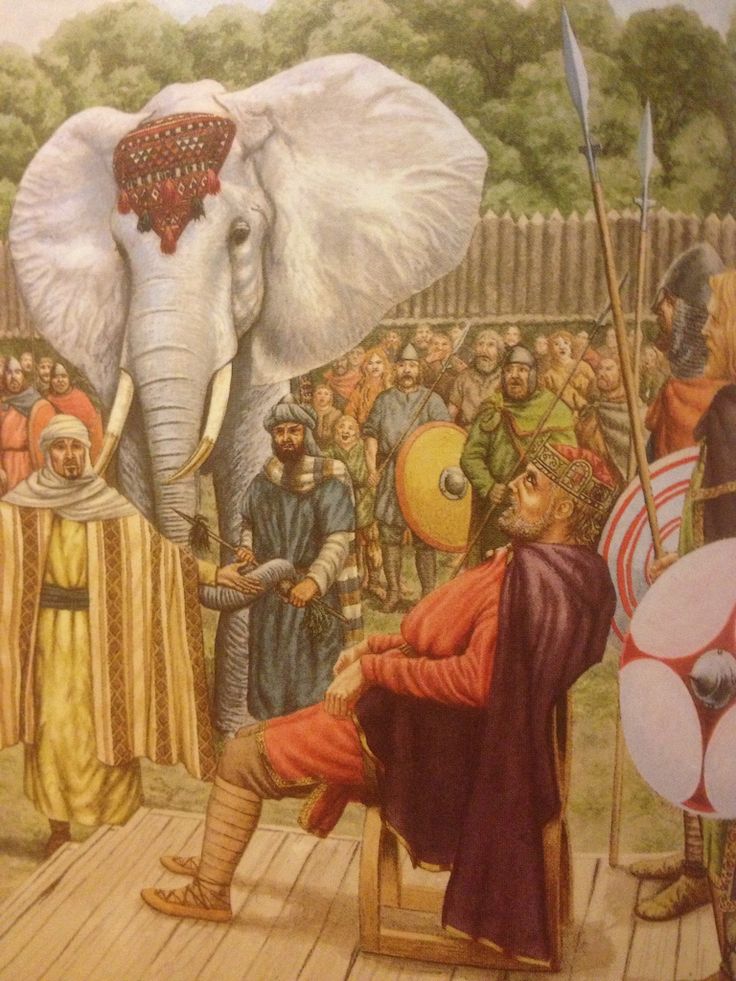
Turks Embrace Islam for the First Time
“The Turks who roamed the Central Asian plains would not come into Islamic civilization through conquest, but through migration into the heartland of Islam in the 800s and 900s.”
[Lost Islamic History by Firas AlKhateeb (Revised Edition), Page 73]
Turks begin to fill the Power Vacuum
“The Abbasids put the Turkic expertise in warfare to good use by recruiting generals ... the Turkic tribes adopted Islam and began to set up their states in the political chaos of the tenth century. The greatest of these was the Great Seljuk Empire, established in 1037 ... Seljuks assumed a role as protectors of the caliph, who remained entrenched in their palaces in Baghdad.”
[Lost Islamic History by Firas AlKhateeb (Revised Edition), Page 121]
Seljuk Era during their Height of Power
1040 - 1094 CE
The Crusaders Enter in Jerusalem
“After a bloody campaign studded with atrocities, the Crusaders conquered Jerusalem in 1099, which had been under the Arabian rule since the 7th century.”
“The Crusaders plundered the city and massacred the inhabitants.”
[Essential Visual History of the World, Page 152-153]
“... When news of her plight reached their kings, they told her, ‘He is compassionate. We give you permission to go to him, so go and ask him and he will give back to you.’ ... So she went out and asked the Muslim scouts for help, telling them about the situation. They took her to the Sultan ... she wept greatly ... his eyes overflowed with tears ...”
[Salah ad-Deen al-Ayubi, Vol 3, Page 184-185]
Salahuddin Ayyubi
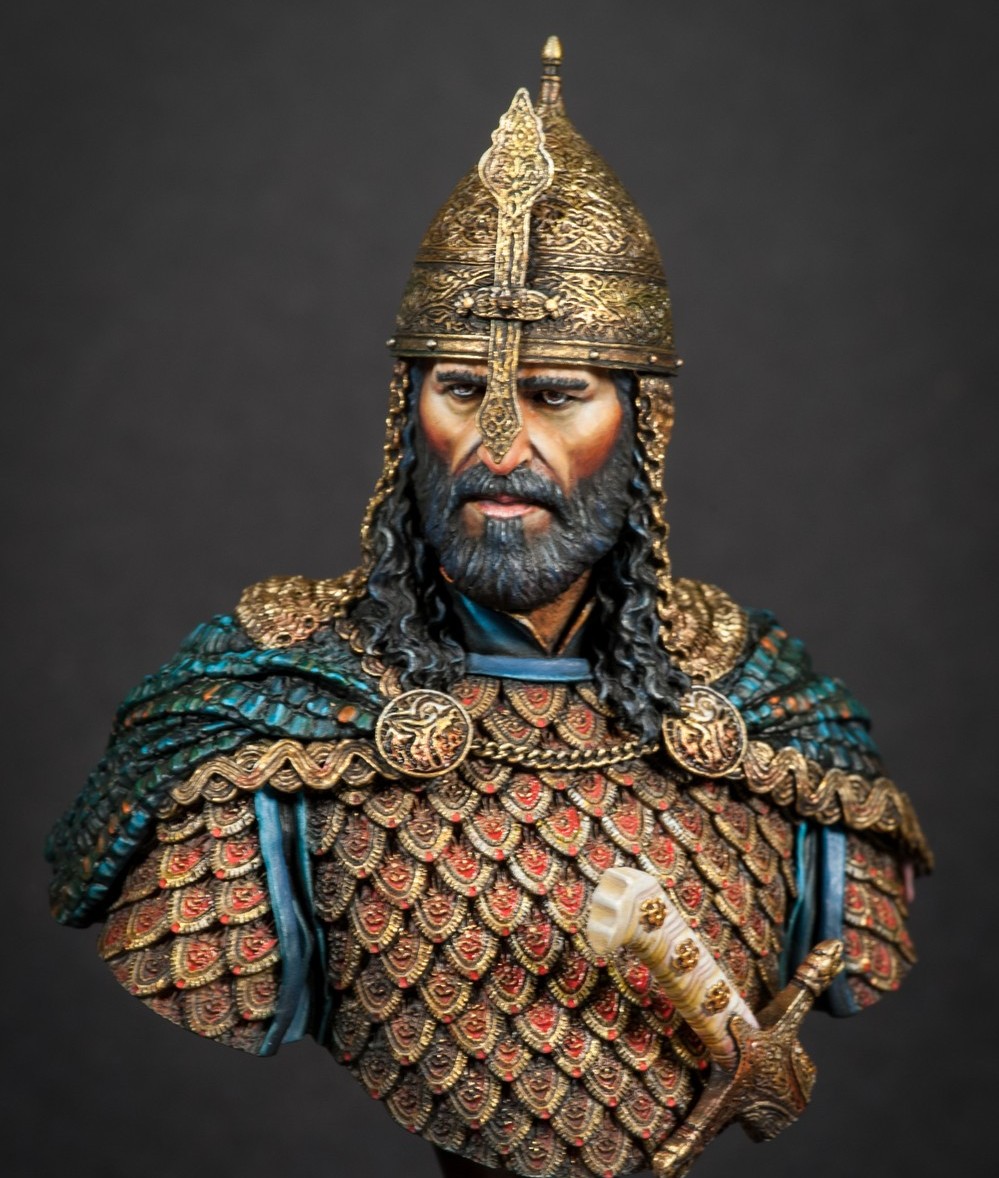
Grand Bazaar of Istanbul
“Rents from the Bedestan supported the Ayasofya Mosque. Smaller mosques had their own bedestans ... supported the activities of the mosque itself, its imarets (soup-kitchens) and madrasas.”
[Istanbul: A Tale of Three Cities, Page 412]
“Merchants could leave stall unattended; pastry-sellers trusted members of the public to pay for the wares they left on a small round tray. In 1591 a robbery of safes in the Grand Bazaar was an unprecedented horror. The culprit ... was hanged in the Sultan’s presence.”
[Constantinople by Philip Mansel, Page 130]
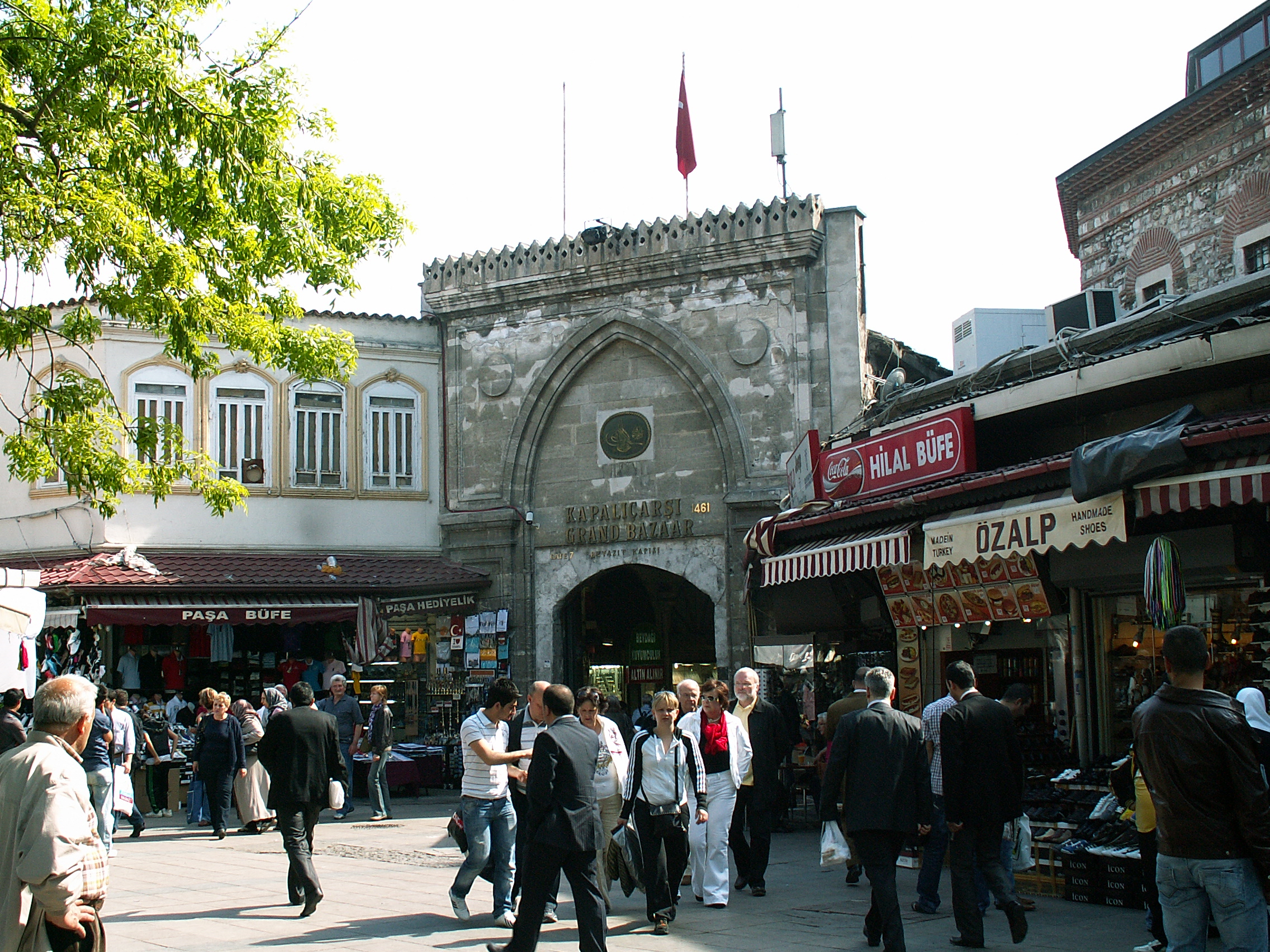
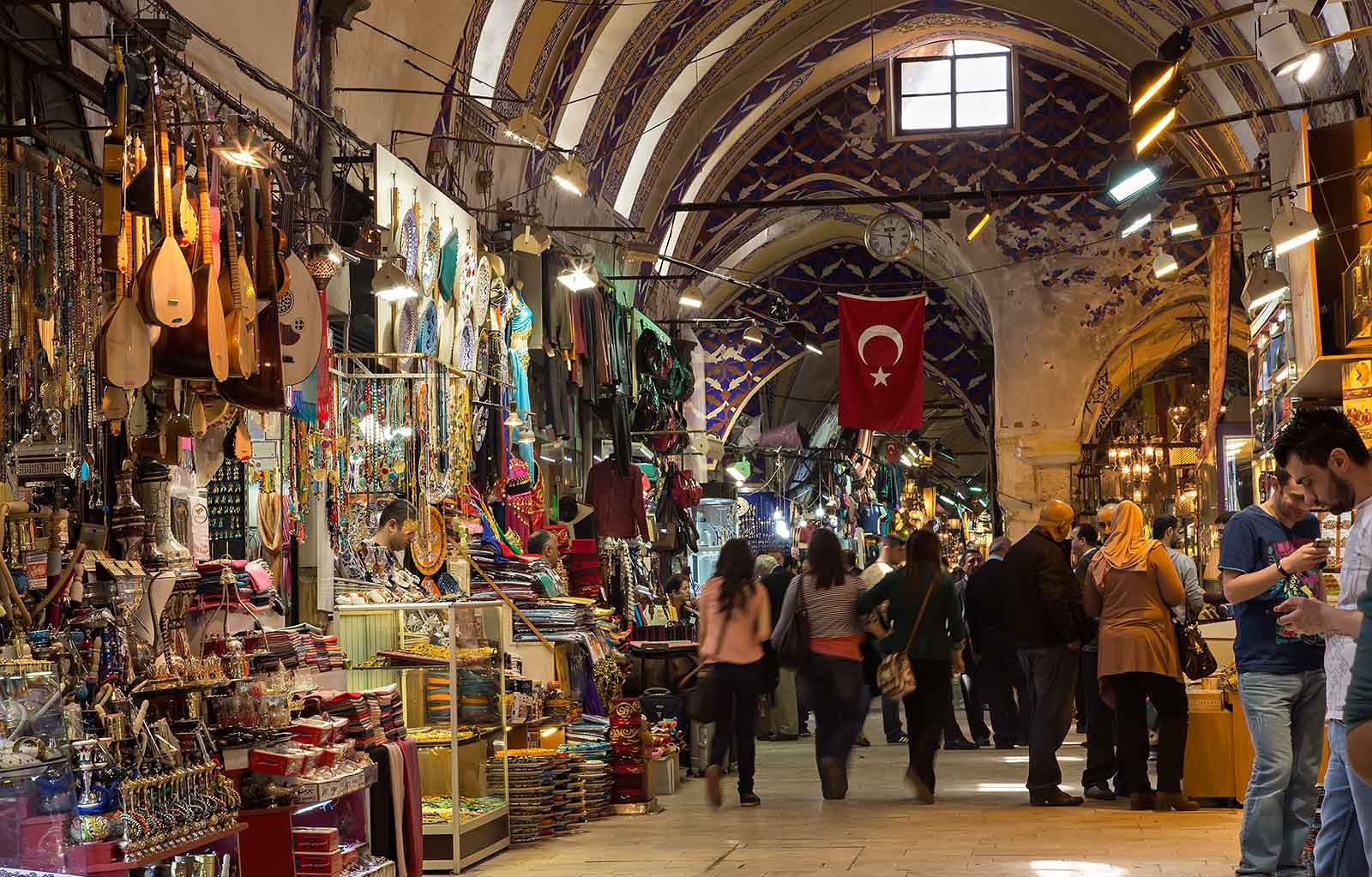
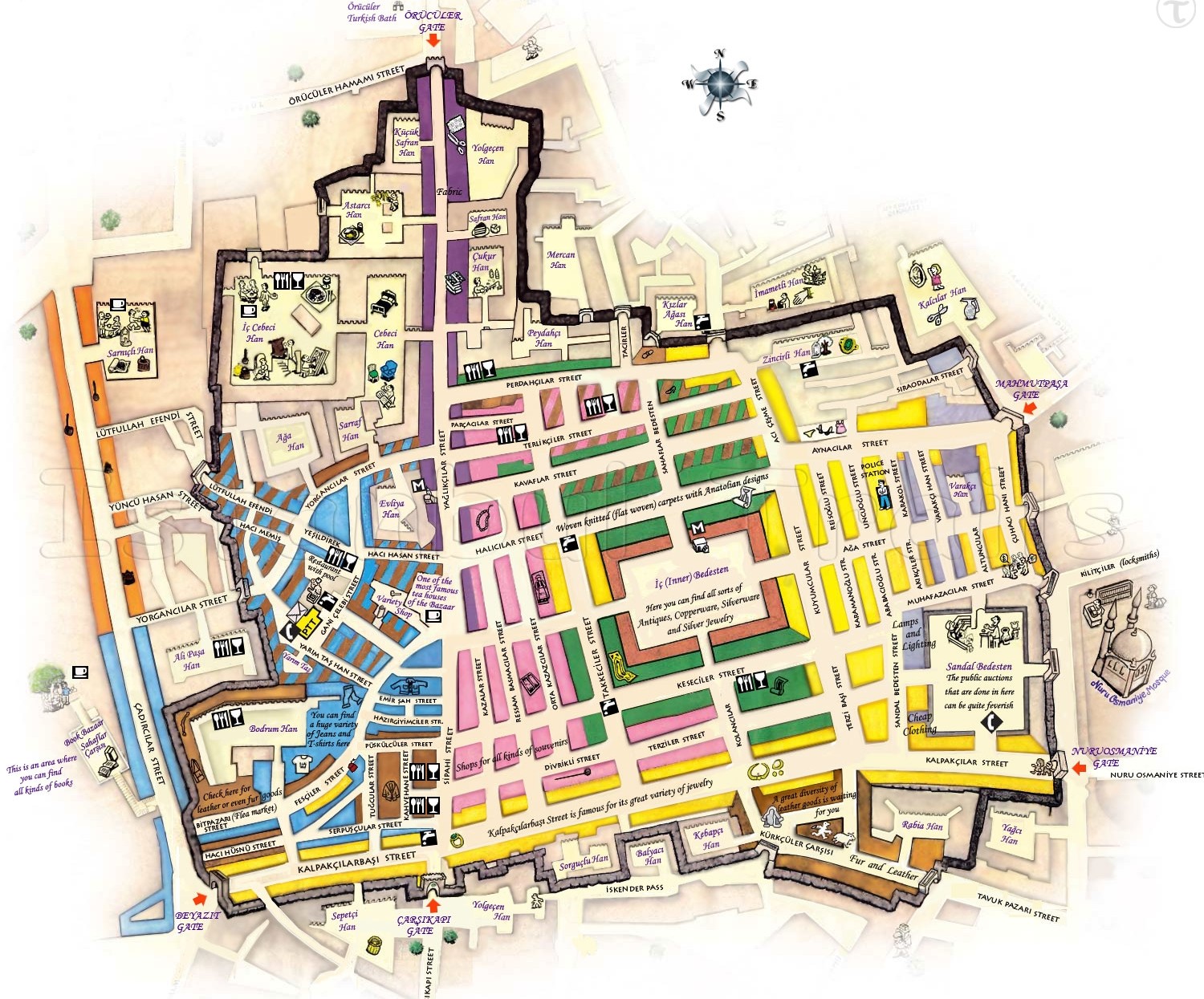
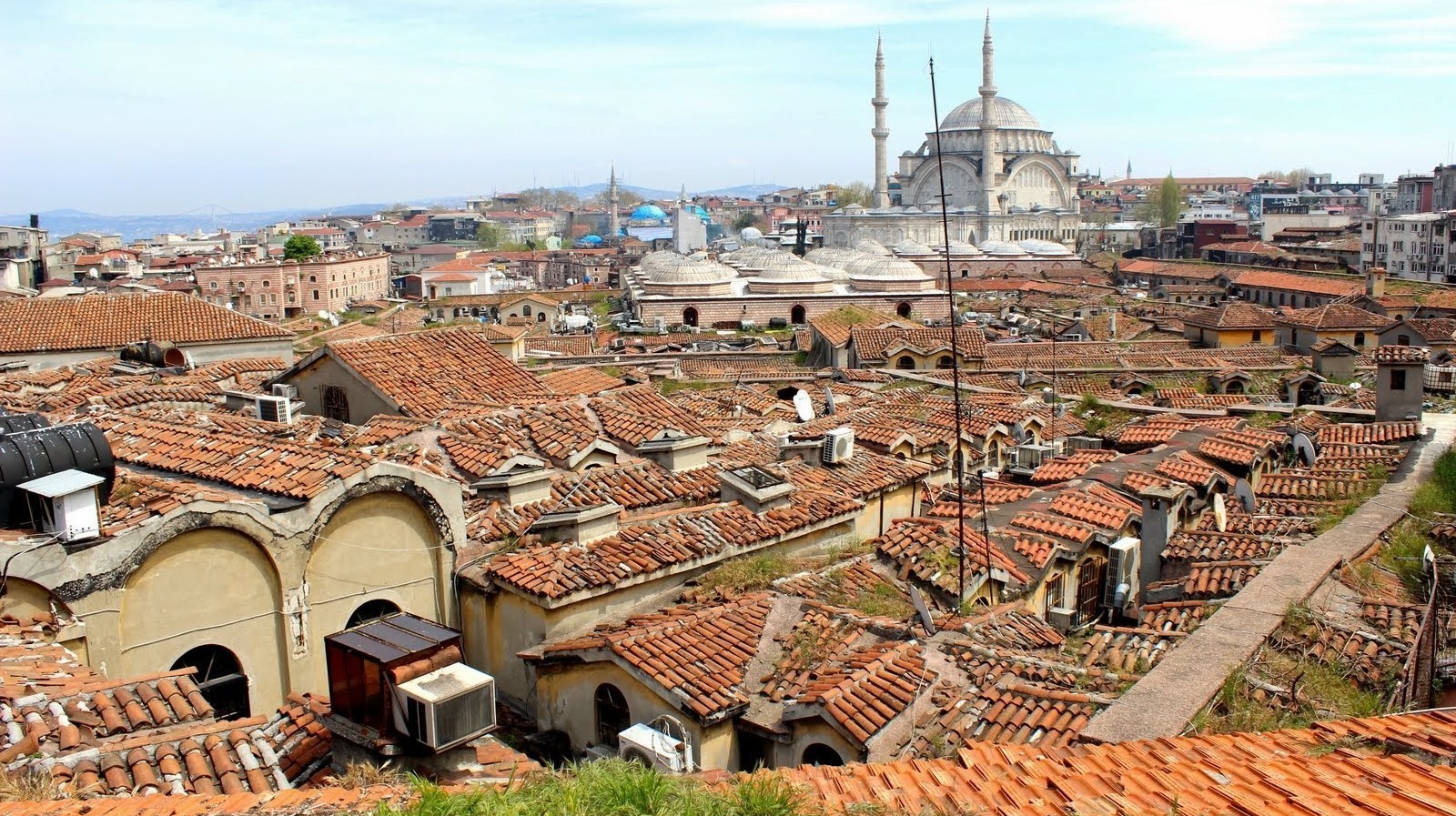
“When news of Murad’s death reached Europe, King Charles VI of France thanked God in Notre-Dame.”
[Osman’s Dream by Caroline Finkel, Page 21]
Golden Age of Islam
اسلام کا
سنہری دور
Selected Pages Part 2 of 2
منتخب صفحات
M. Ahmad Zafar | 26 Oct, 2023 | aagahi.com
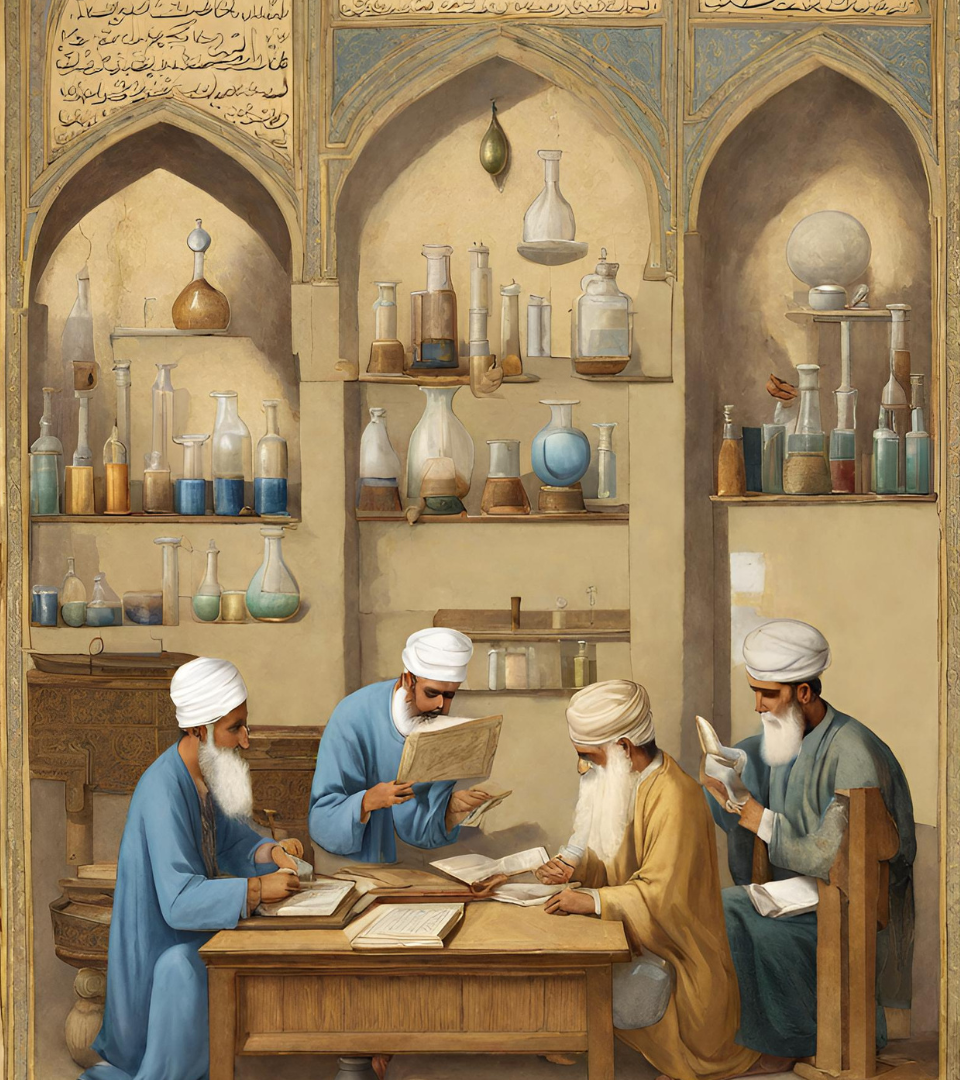
The 30 Years of Blessed Caliphate
عَنْ سَفِينَةَ، قَالَ قَالَ رَسُولُ اللَّهِ صلى الله عليه وسلم « خِلاَفَةُ النُّبُوَّةِ ثَلاَثُونَ سَنَةً ثُمَّ يُؤْتِي اللَّهُ الْمُلْكَ مَنْ يَشَاءُ - أَوْ مُلْكَهُ مَنْ يَشَاءُ »
Safinah (r.a) reported that the Messenger of Allah (s.a.w) said, “The Caliphate of Prophecy will last thirty years; then Allah will give the Kingdom to whom he wishes; or his kingdom to whom he wishes.”
[Sunan Abi Dawood, Kitab as-Sunnah (39), 4647] (Hasan)
The 30 Years of Blessed Caliphate
| Blessed Caliph | Duration |
|---|---|
| Abu Bakr As-Siddiq ؓ | 2 Years 3 Months 10 Days |
| Umar bin Khattab ؓ | 10 Years 6 Months 8 Days |
| Uthman ibn Affan ؓ | 11 Years 11 Months 9 Days |
| Ali ibn Abi Talib ؓ | 4 Years 9 Months 7 Days |
| Hasan ibn Ali ؓ | 7 Months |
| 30 Years |
Banu Umayyad Masjid in DamascusCompleted in 715 CE by the Umayyad Ruler Walid
۔۔۔ جب خلافت عمر بن عبدالعزیز کو ملی تو اُس نے مسجد اموی سے تمام سونے چاندی کی زنجیریں اکھاڑ کو واپس بیت المال میں جمع کرنے کا ارادہ کر لیا ۔۔۔
خالد نے (بن عبداللہ القسری) جواب دیا، "اے امیر المومنین اس مسجد کی تعمیر میں جو سنگ روحام استعمال ہوا ہے زیادہ تر مختلف علاقوں کے مسلمانوں کا عطیہ کردو ہے، اس میں بیت المام سے کچھ بھی نہیں لیا گیا۔"
جب اس واقعہ کا عمر بن عبدالعزیز کو ہوا تو اس نے کہا، "اگر یہ مسجد کفار کے دلوں میں کھٹکتی ہے تو اسے رہنے دو۔"
[ابن کثیر کی کتاب البدايۃ والنهايۃ، جلد 9، 74 تا 125ھ کے واقعات]
Dome of Rock in Masjid Al-AqsaFinished in 692 CE by Caliph Abdul Malik ibn Marwan
The End of Muslim Political Unity
“Under the Umayyad rule (661-750) the unity of the Muslim Ummah had remained a political reality. But within six years of the accession of Abul Abbas al-Saffah, who was acknowledged as Abbasid Khalifa in 749, the unity of the Caliphate was shattered ...”
[Islam & Pakistan’s Identity by Dr. Javid Iqbal, Page 34]
Abbasid CaliphateFrom 786 CE to 11th Century
Muhammad ibn Musa al-Khwarizmi
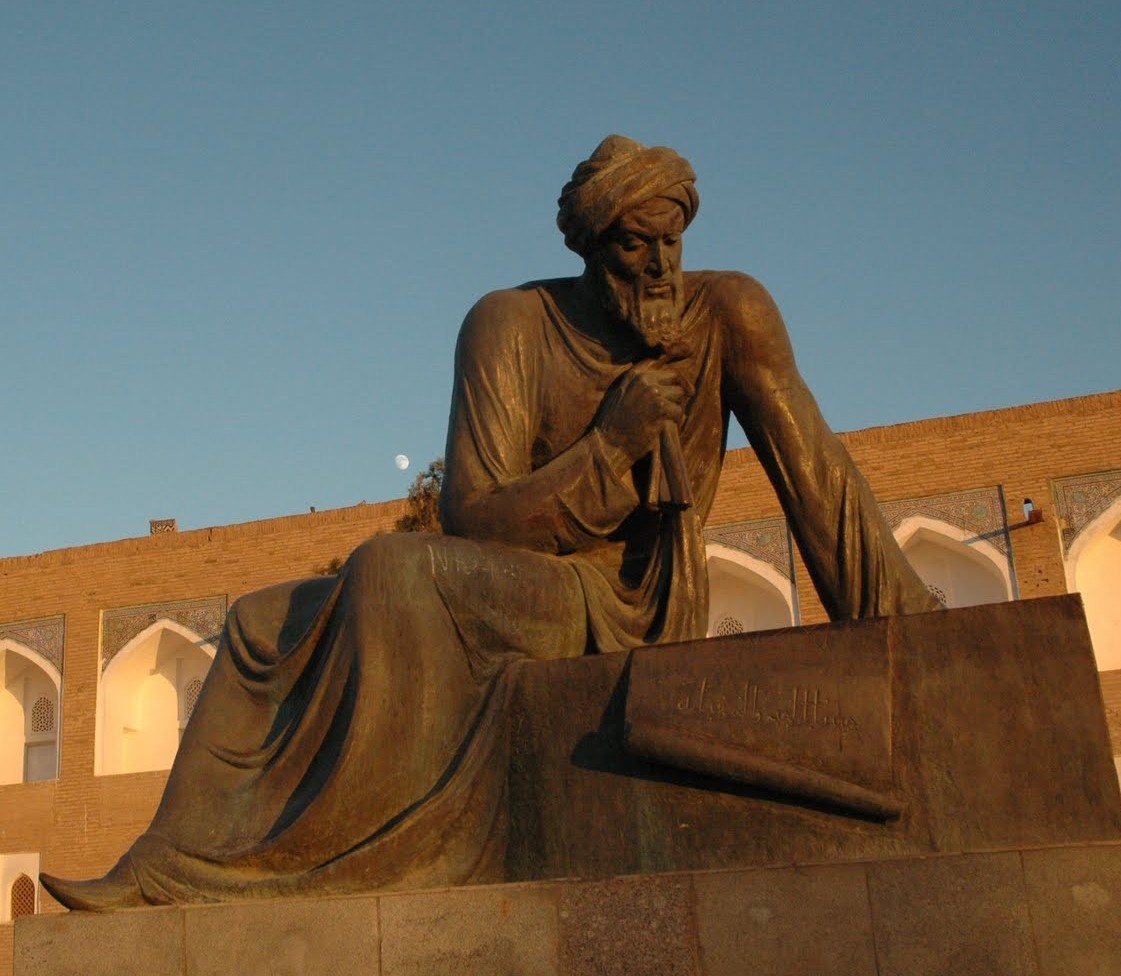
Latinised version of his name – Algorismus, is the origin of our word ‘algorithm’.
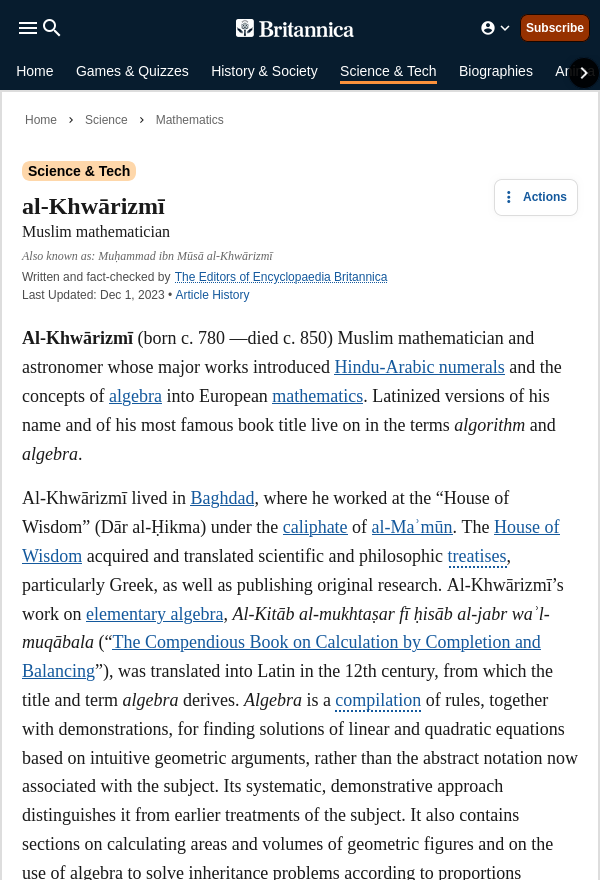
Shape of Arabic and English Numbers
| Modern Letters are influenced by Arabic Shapes | |||||||||
|---|---|---|---|---|---|---|---|---|---|
| 0 | 1 | 2 | 3 | 4 | 5 | 6 | 7 | 8 | 9 |
| ٠ | ١ | ٢ | ٣ | ٤ | ٥ | ٦ | ٧ | ٨ | ٩ |
| I | II | III | IV | V | VI | VII | VIII | IX | |
Romans never had a concept for ZERO and it was introduced by the Muslim scientists.
Abu Rayhan Muhammad ibn Ahmad al-Biruni
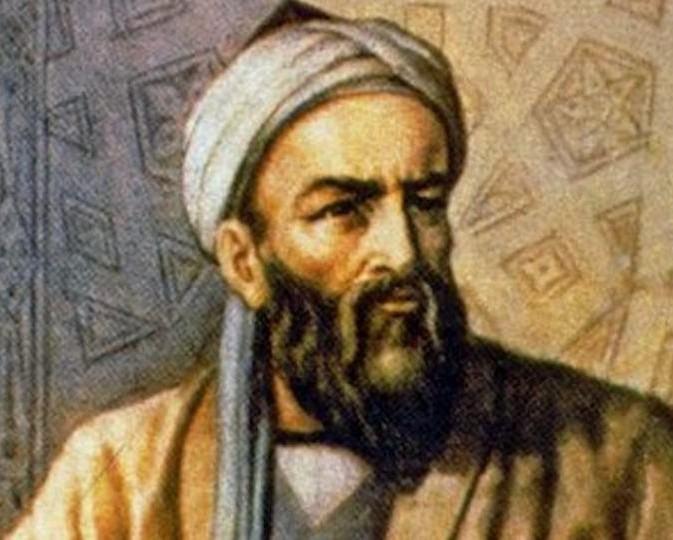
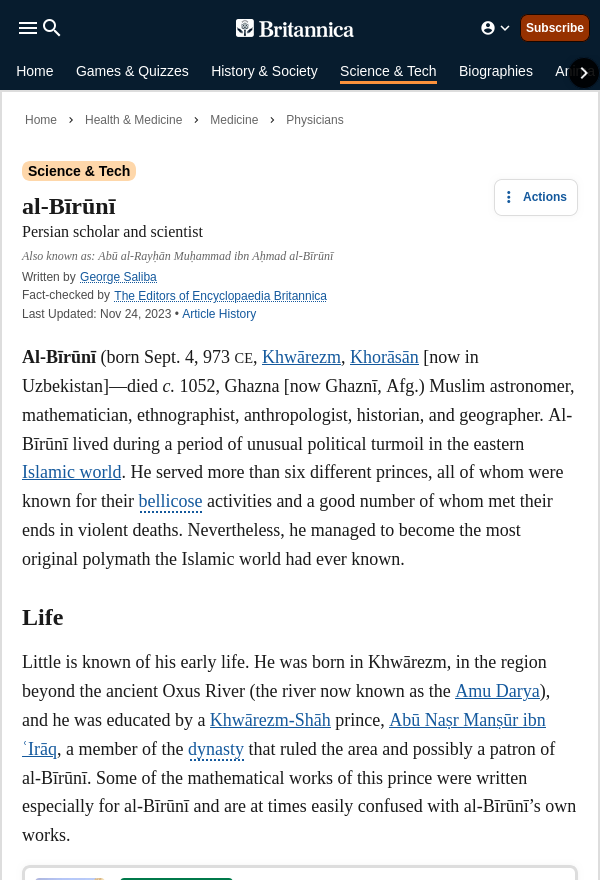
Phases of the Moon Explained
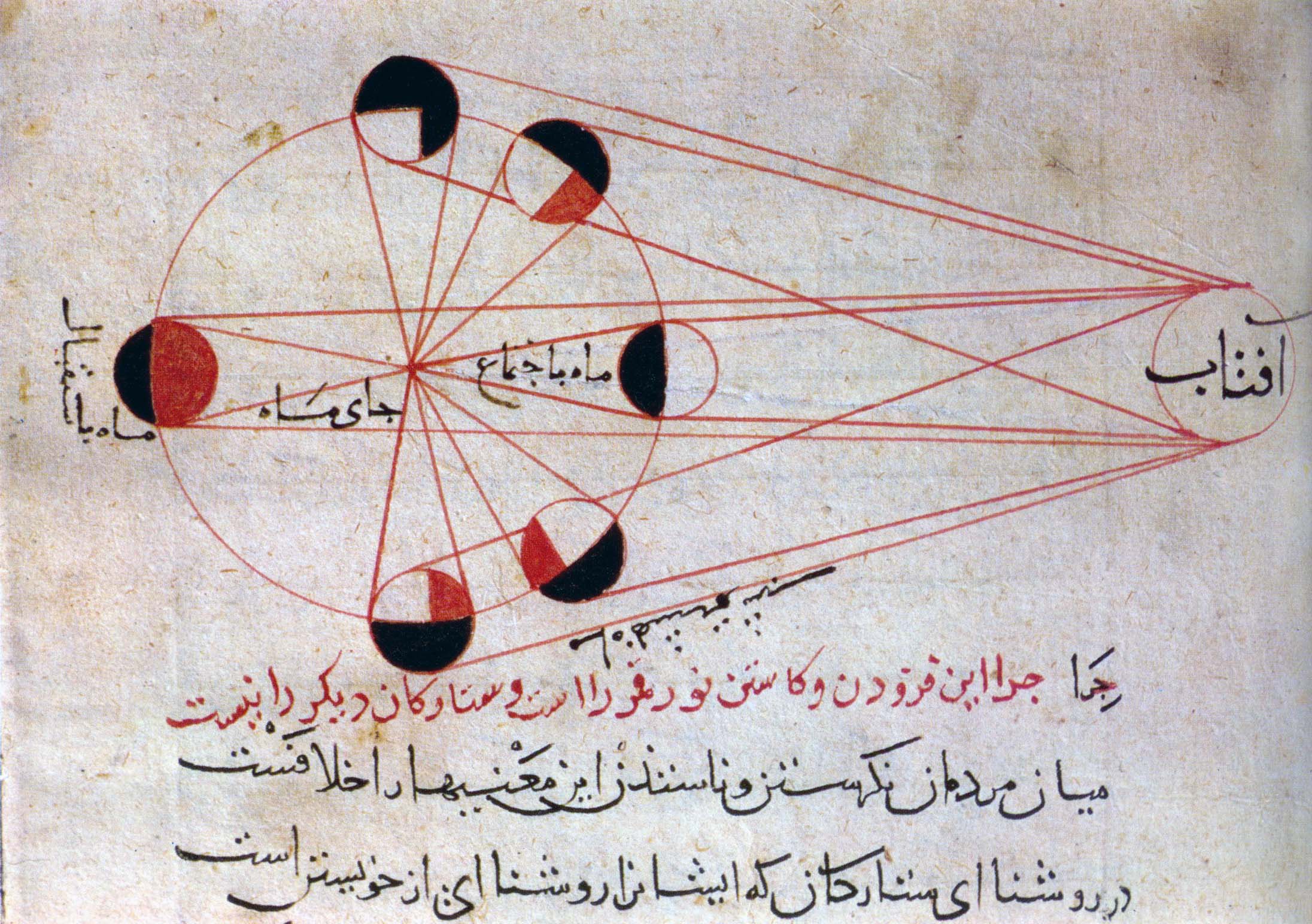
Quran Mentions About the Lunar Phases
يَسْأَلُونَكَ عَنِ الْأَهِلَّةِ ۖ قُلْ هِيَ مَوَاقِيتُ لِلنَّاسِ وَالْحَجِّ ۗ ... ۞
“They ask you, [O Prophet], about the new moons. Say, ‘They are calculations of time for the people and for Hajj.’ ...”
[Surah Al-Baqarah (2), Ayat 189]
Abu Ali al-Husayn bin Abdullah (Ibn Sina)
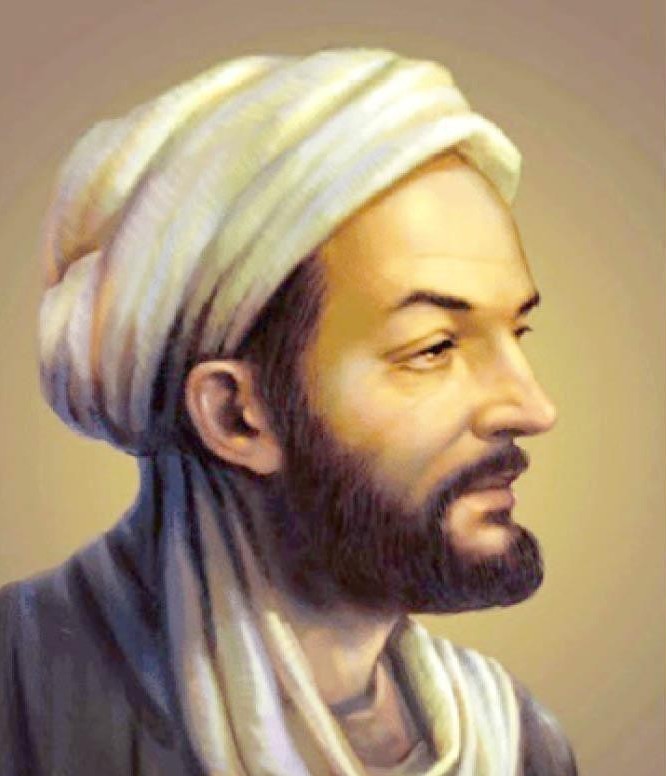
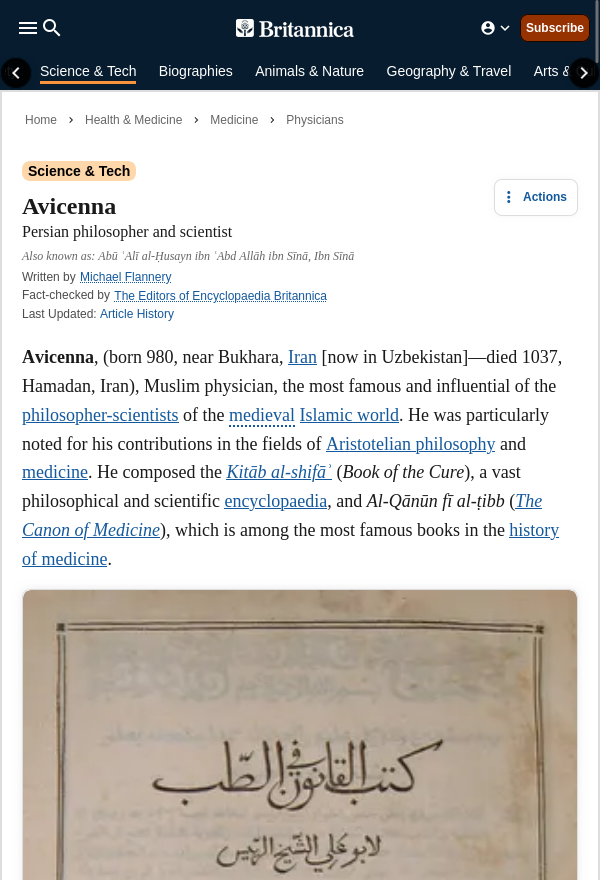
Muhammad ibn Ibrahim al-FazariUsed Astrolabe for Qibla direction in the 8th Century
Abu Abdullah Muhammad al-IdrisiCreated more than 70 maps in the 12th Century
Abu Abdullah Muhammad al-IdrisiHis Famous Mediterranean Map now INVERTED
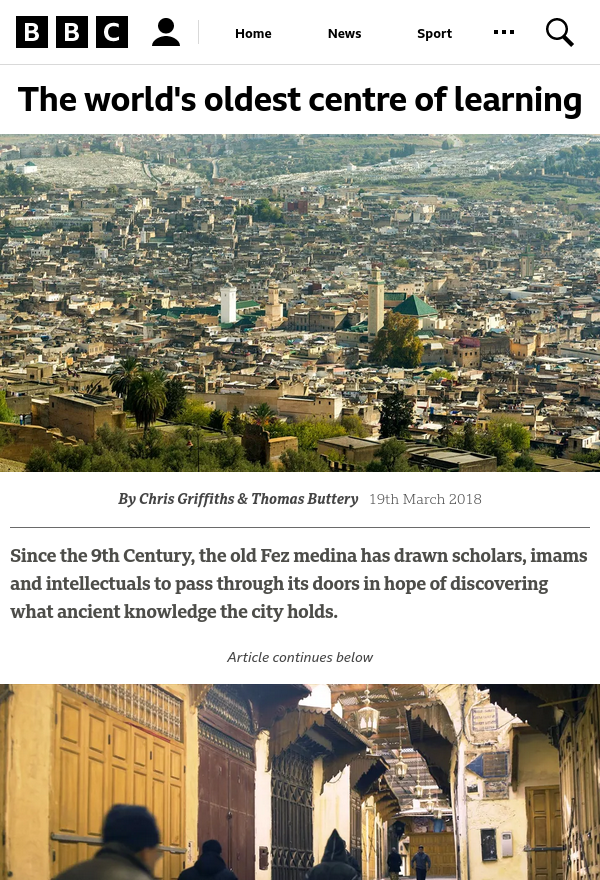
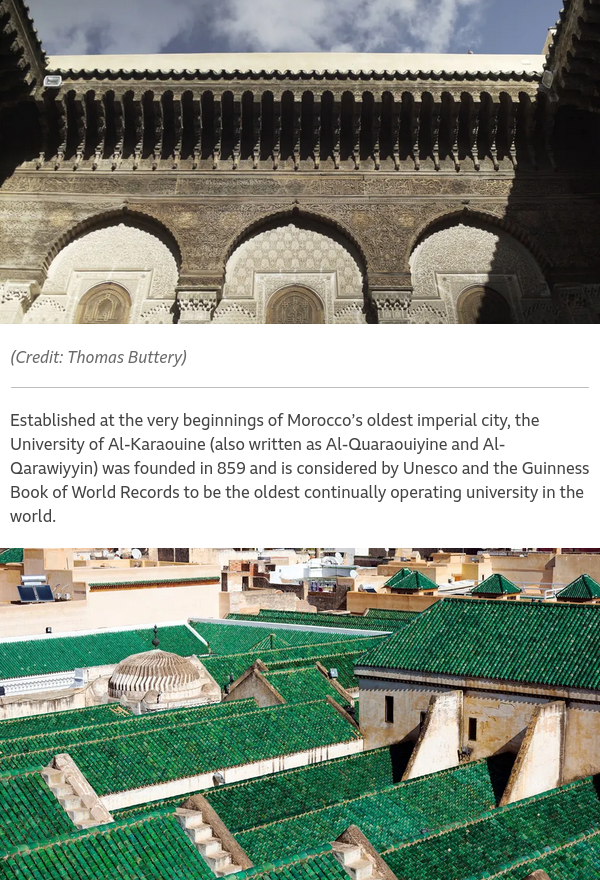
Al-Azhar UniversityOperating since 970 CE
“The Mamluks (literally ‘Slave’) dynasty of Egypt arose during the military crisis ... replacing their former masters, the Ayyubids.”
[A Journey Through Islamic History, Page 93]
“The Mamluks originated from a Turkish military household of the Ayyubid ruler al-Malik al-Salih Najm ... the Mamluks embraced Islam ... and defended its holy places ...”
[A Journey Through Islamic History, Page 94]
The Mamluks
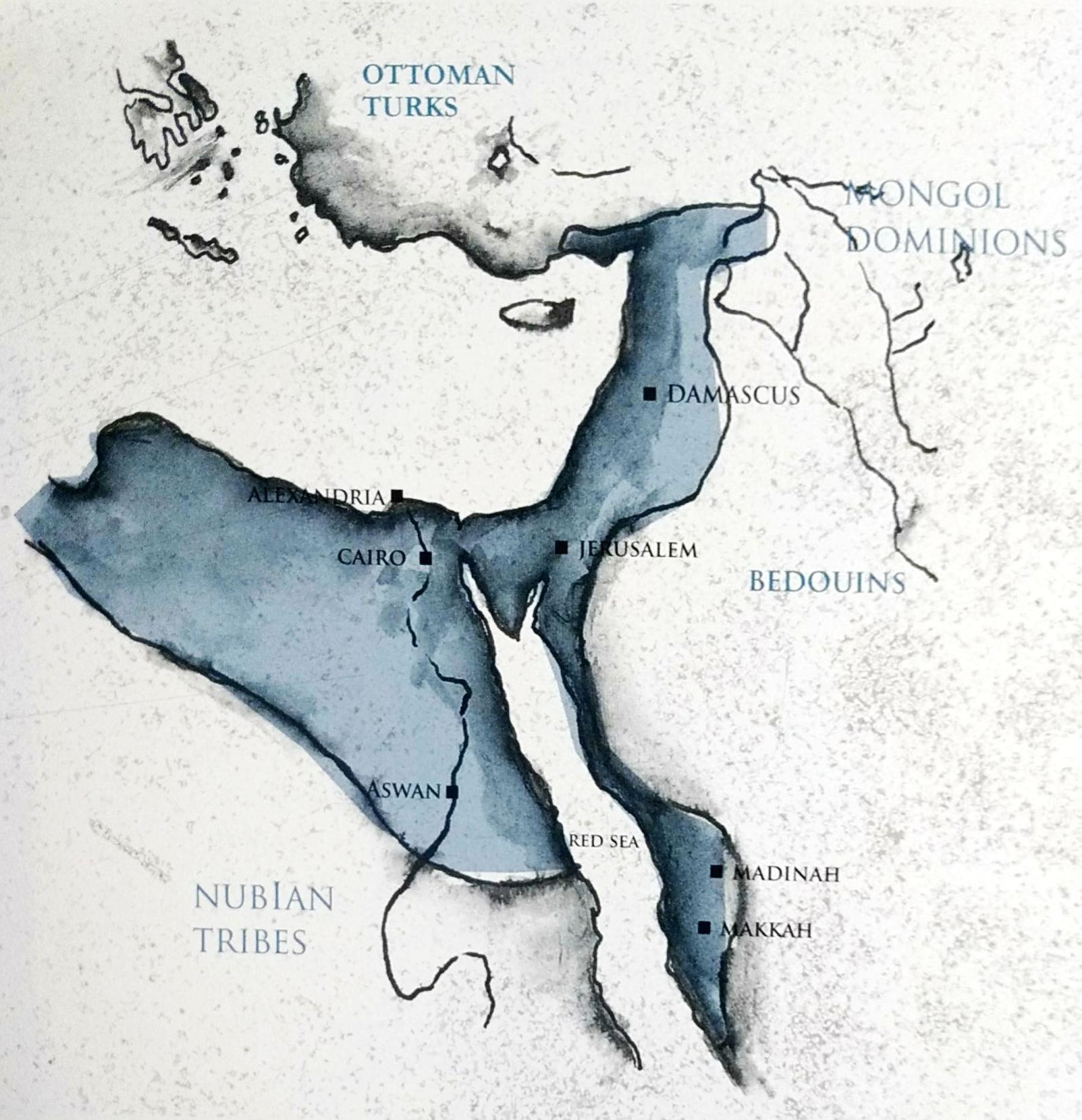
Muslim’s Approach Towards Knowledge
عَنْ أَبِي هُرَيْرَةَ، قَالَ قَالَ رَسُولُ اللَّهِ صلى الله عليه وسلم « الْكَلِمَةُ الْحِكْمَةُ ضَالَّةُ الْمُؤْمِنِ فَحَيْثُ وَجَدَهَا فَهُوَ أَحَقُّ بِهَا »
It was narrated by Abu Hurairah (r.a) that the Messenger of Allah (s.a.w) said, “A wise word is the lost property of the believer, so wherever he finds it, he has more right to it.”
[Tirmidhi, Kitab-ul-Ilm (41), 2687] (Daif)
[Ibn Majah, Kitab Zuhd (37), 4169] (Daif)
Students & Scholars of Quran
عَنْ عُثْمَانَ ـ رضى الله عنه ـ عَنِ النَّبِيِّ صلى الله عليه وسلم قَالَ « خَيْرُكُمْ مَنْ تَعَلَّمَ الْقُرْآنَ وَعَلَّمَهُ »
It was narrated by Uthman bin Affan (r.a) that the Prophet (s.a.w) said, “The best among you (Muslims) are those who learn the Quran and teach it.”
[Sahih Al-Bukhari, Virtues of the Quran (66), 5027]
Ottoman Empire at the Height of its Power
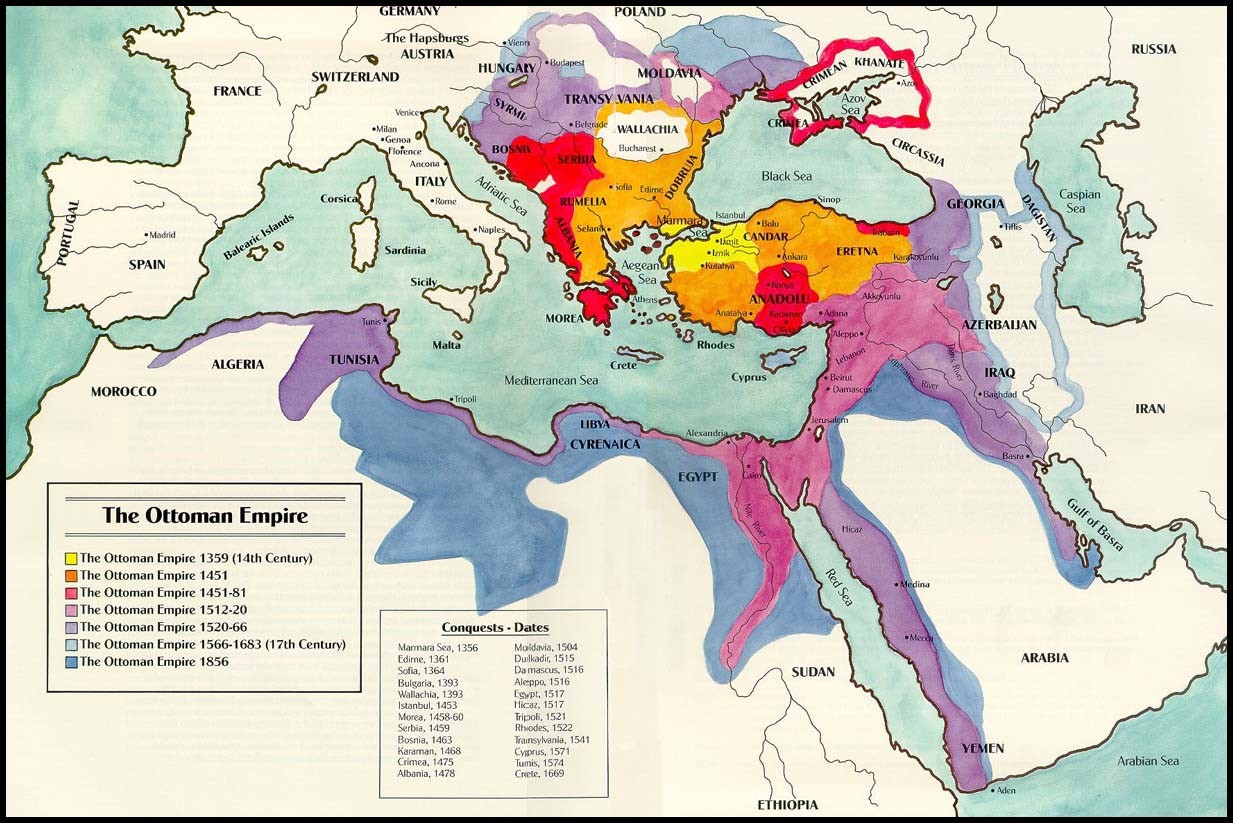
Abu al-Qasim Abbas ibn Firnas
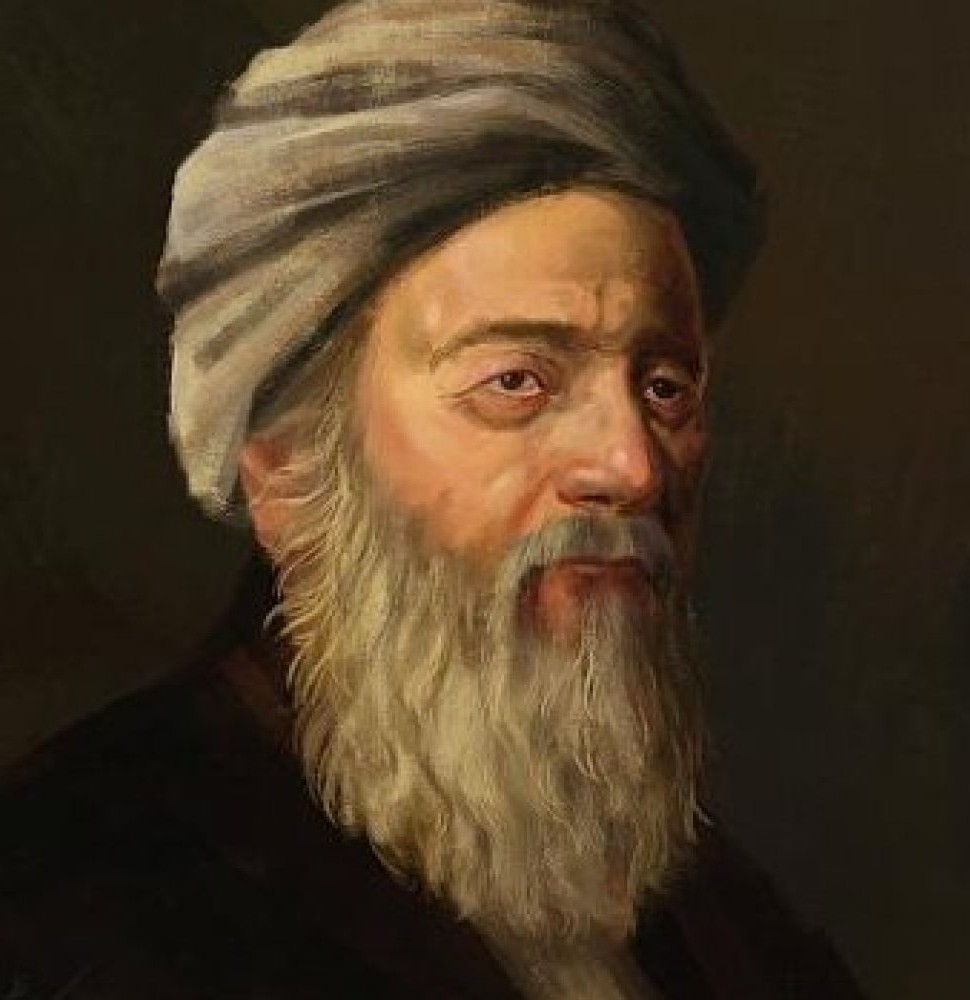
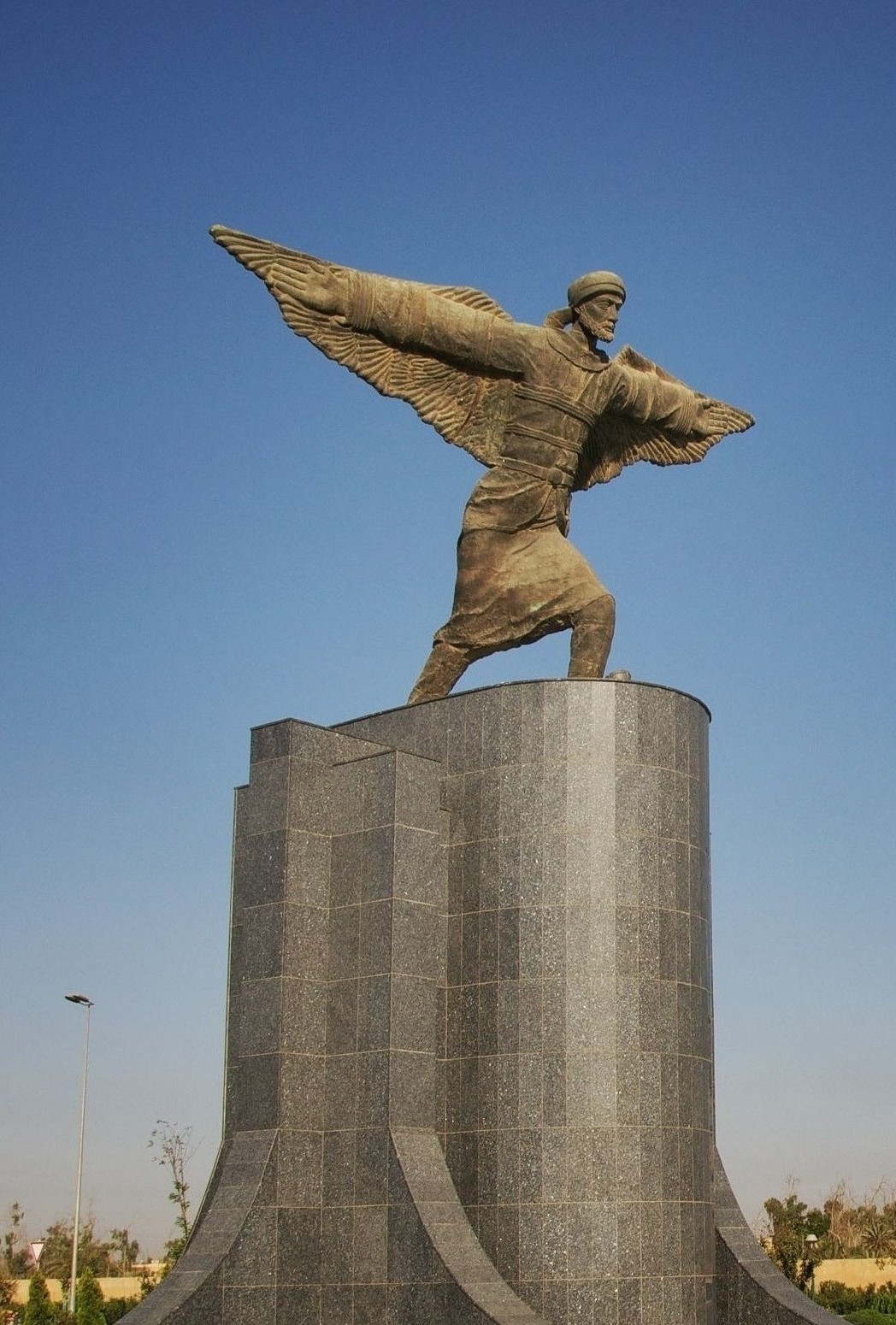
Muhammad ibn Aslam Al-Gafequi
Al-Ghafiqi (d. 1165 CE) was a 12th-century Andalusian-Arab oculist and author of The Right Guide to Ophthalmology (Al-Murshid fi ’l-Kuhhl).
The book shows that the physicians of the time had a complex understanding of the conditions of the eye and eyelids, which they treated with many different surgical procedures, ointments, and chemical medicines.
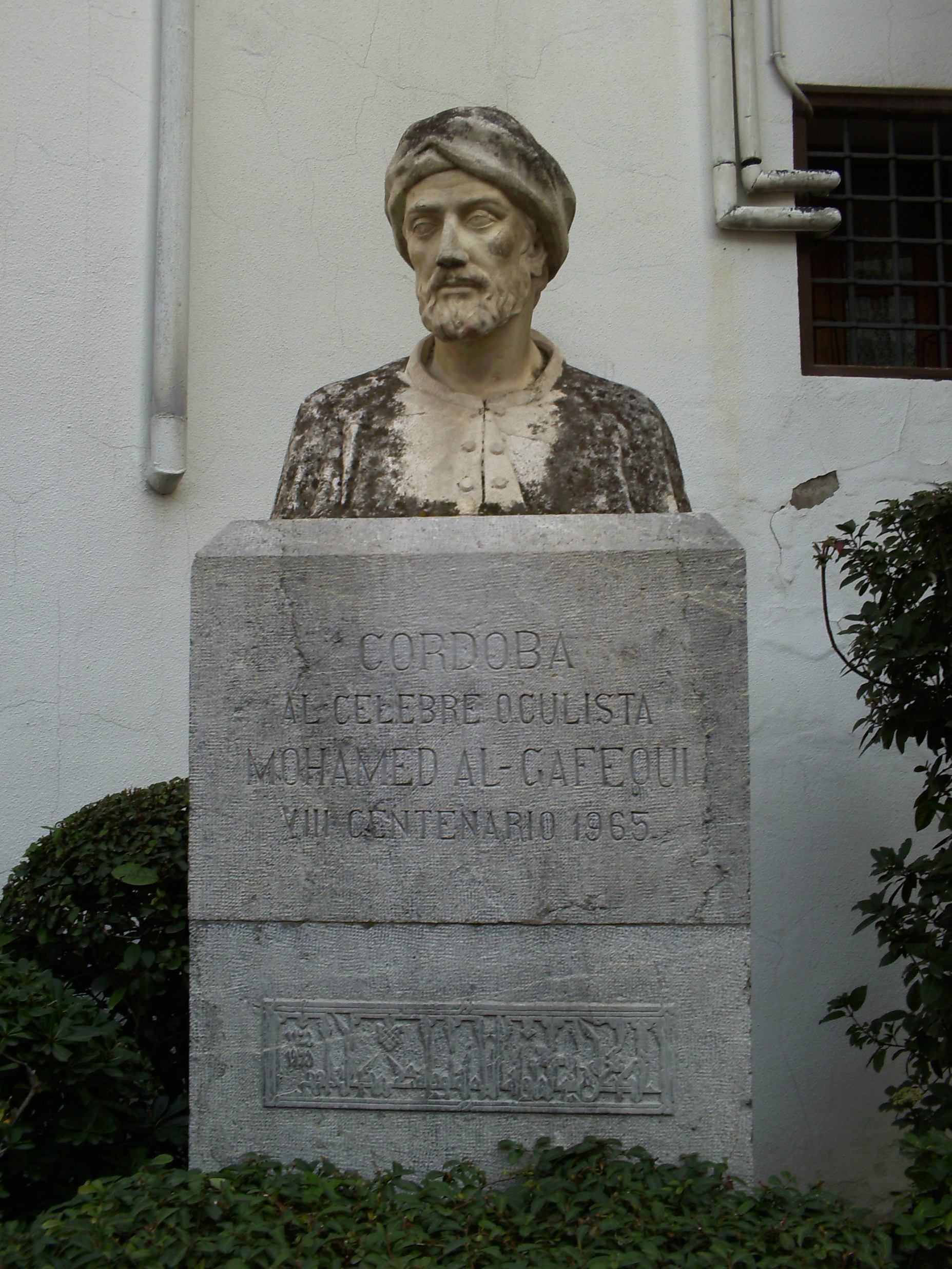
Piri Reis spent his life off the coast of al-Andalus and then from 1492 joined the Ottoman Navy. Soon became the world famous cartographer through his book.
“Global powers were desperate to use Piri Reis’ ground-breaking accurate schemes, but the Ottoman court was always given first look.”
[Istanbul: A Tale of Three Cities, Page 434]
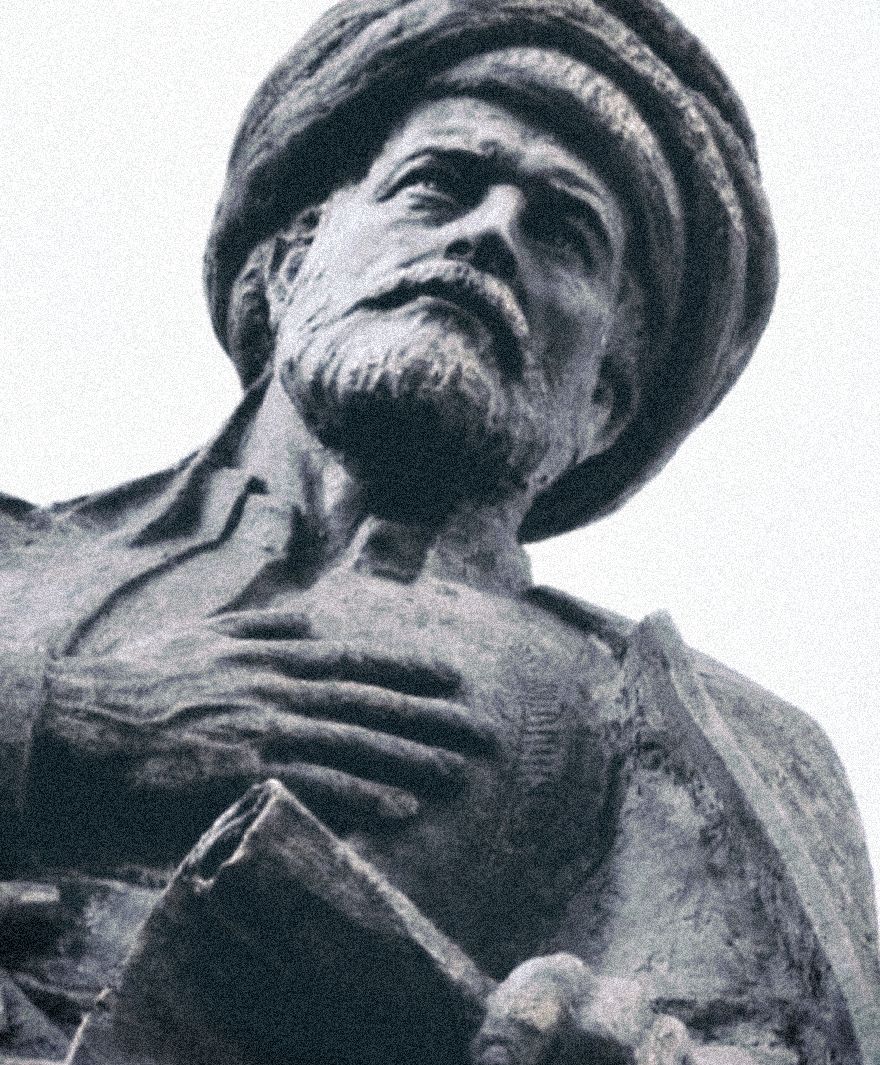
Suleiman the Magnificent
1566 CE / 974 H
“He built or restored 477 buildings (of which 159 were mosques), 319 of them in Constantinople ...”
[Constantinople by Philip Mansel, Page 34]
“Sinan himself considered the Mosque of Selim at Edirne, built in the years 1569–75, to be his masterwork.”
[Encyclopaedia Britannica, Sinan]
“Yusuf, his favourite pupil, is reputed to be the architect of the palaces at Delhi, Lahore and Agra built by Akbar.”
[Hundred Great Muslims by K. J. Ahmad, Page 278]

Email: MAhmadZ@pm.me
YouTube: @MAhmadZ
Twitter: @MAhmadZ
Telegram: @MAhmadZ
Soundcloud: @MAhmadZ
LinkedIn: @MAhmadZ
For the full video & other beneficial topics, visit:

YouTube: @MAhmadZ
Twitter: @MAhmadZ
Telegram: @MAhmadZ
Soundcloud: @MAhmadZ
LinkedIn: @MAhmadZ
Email: MAhmadZ@pm.me